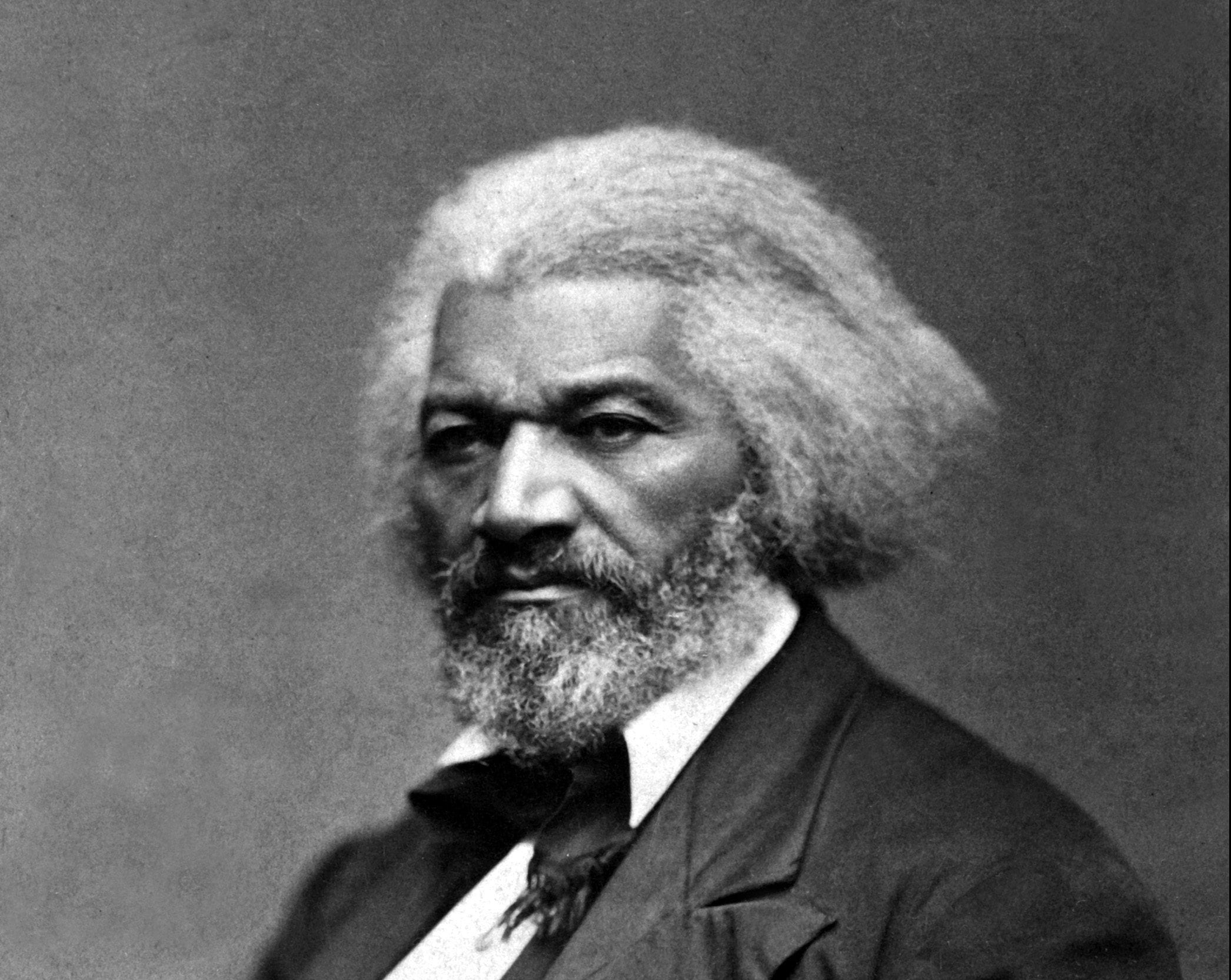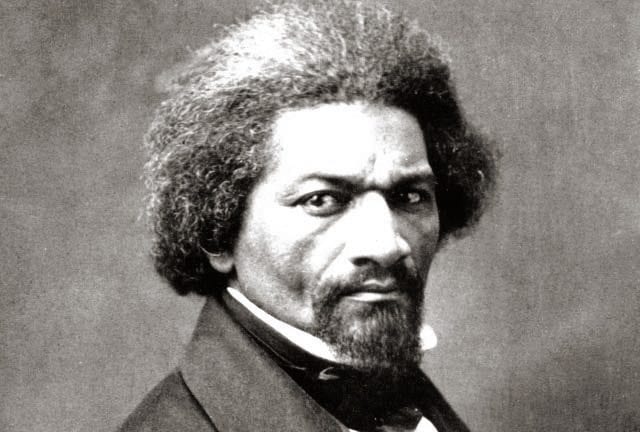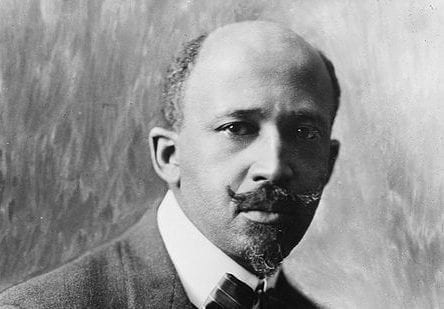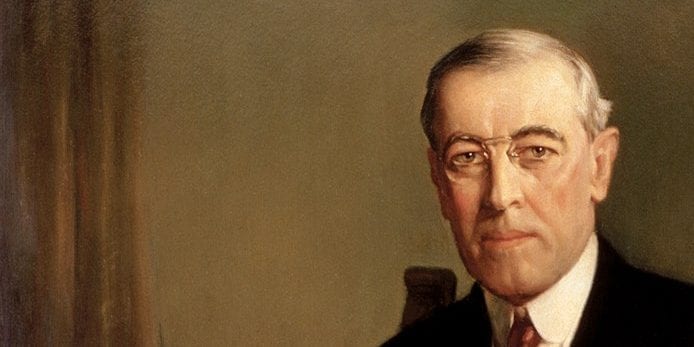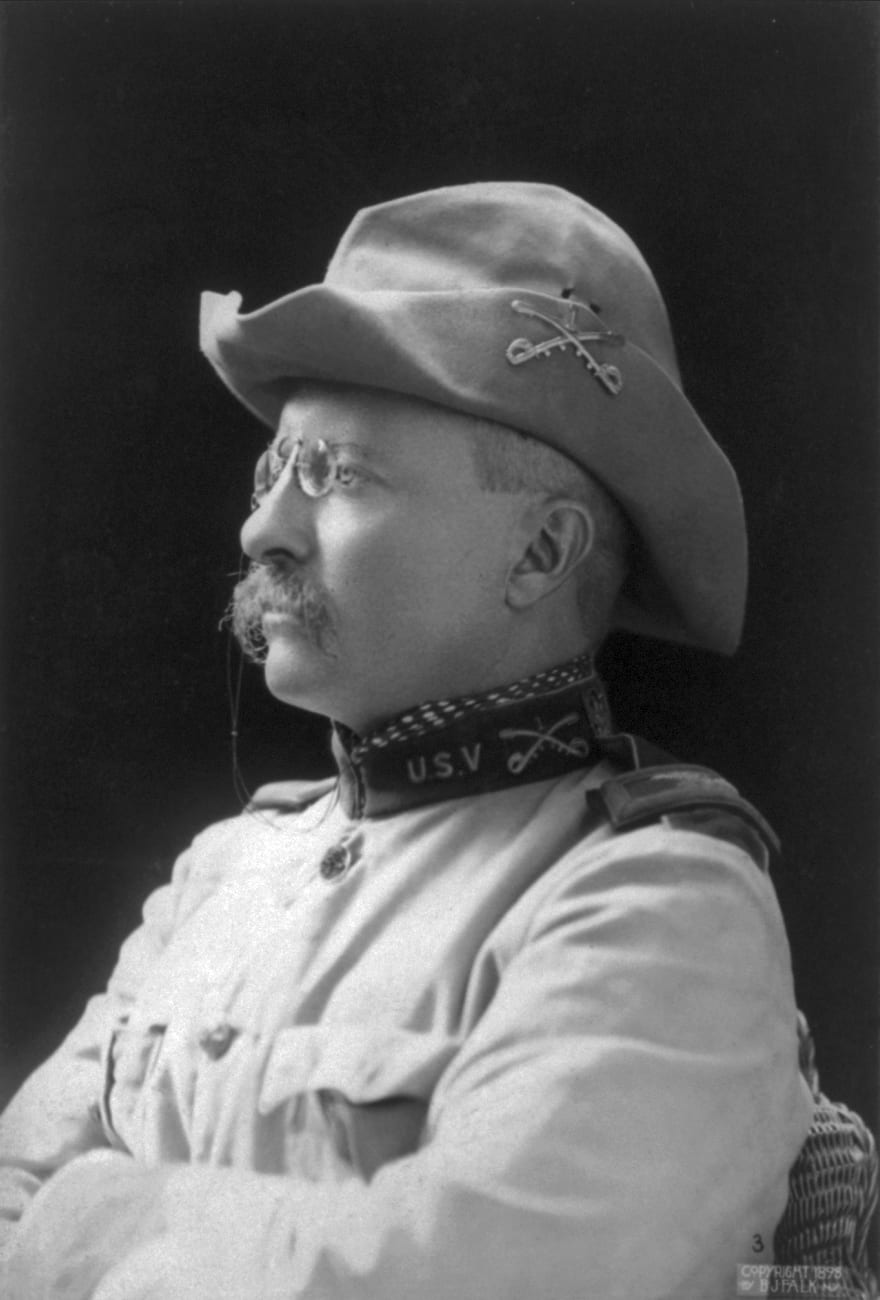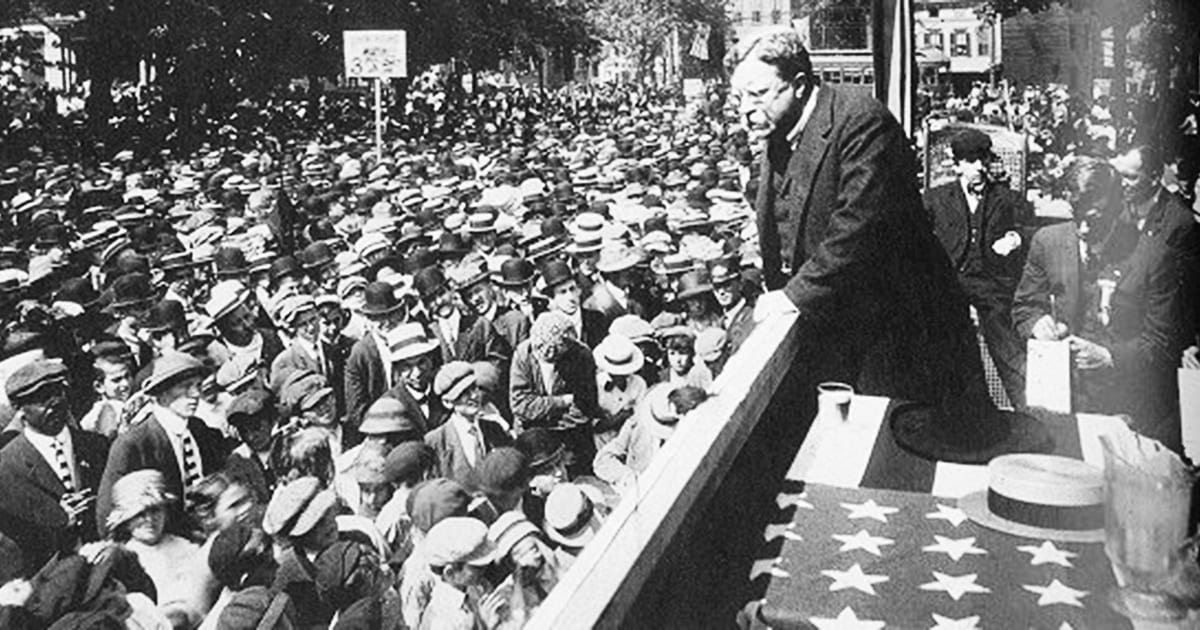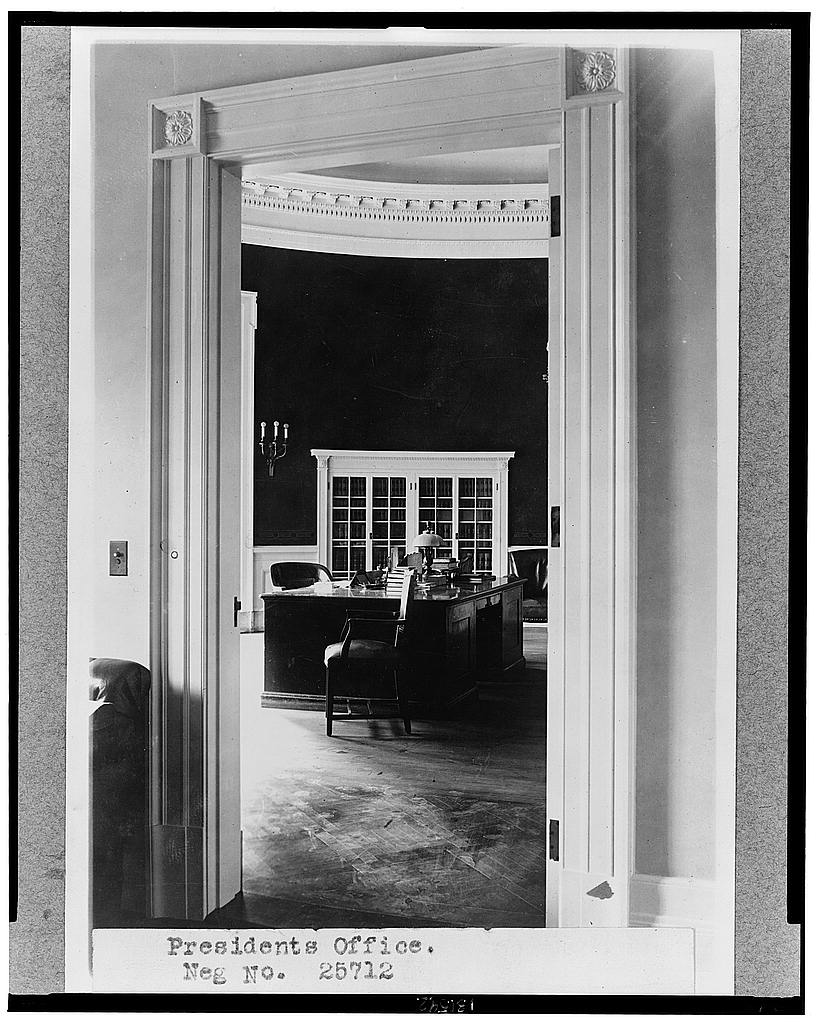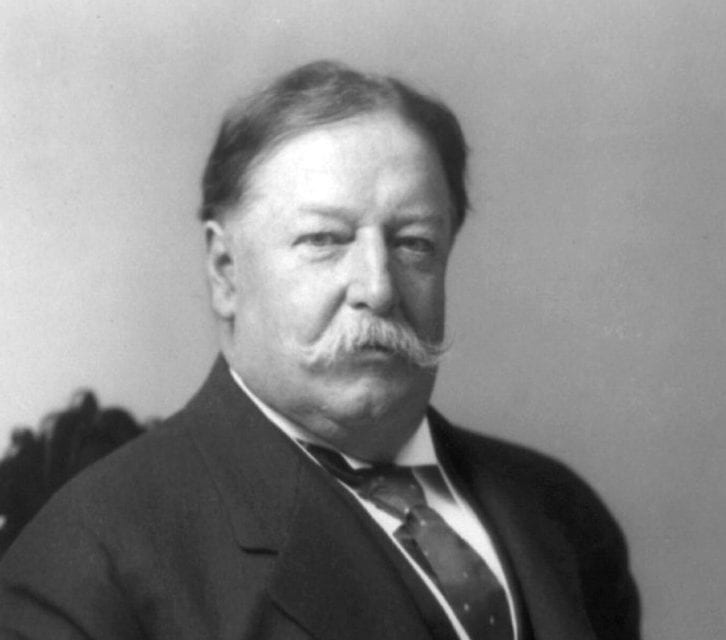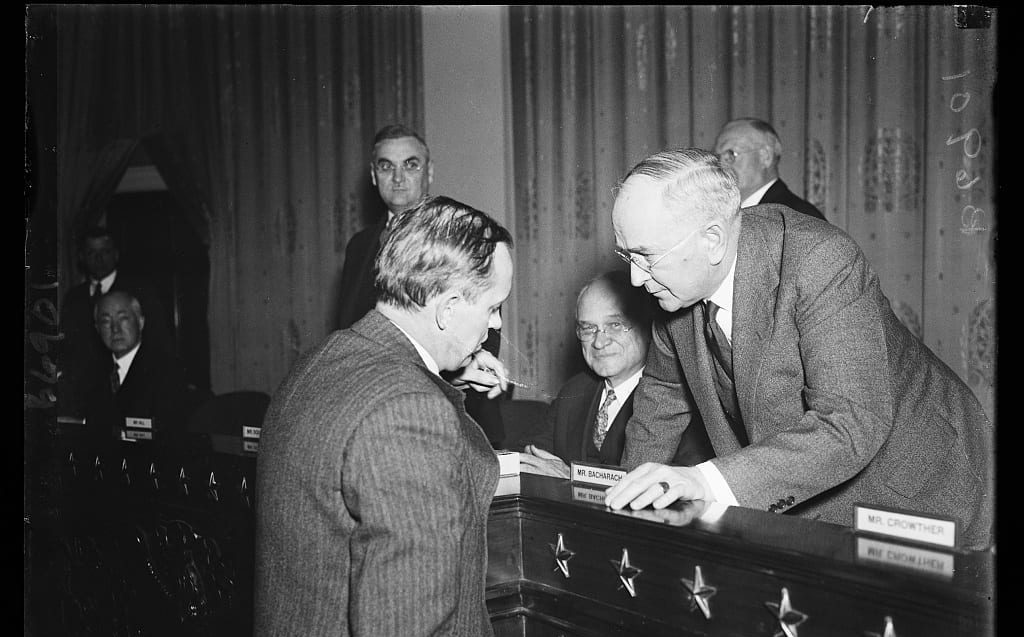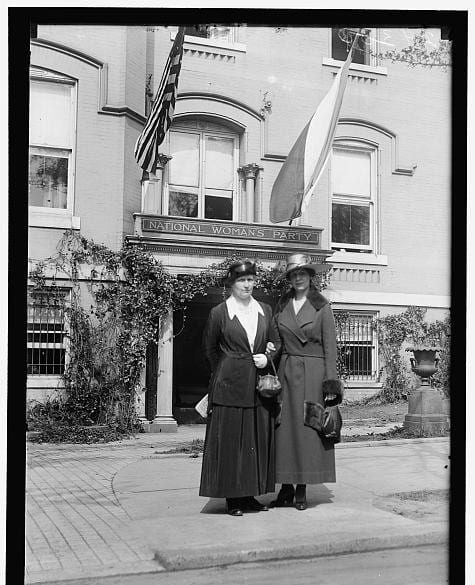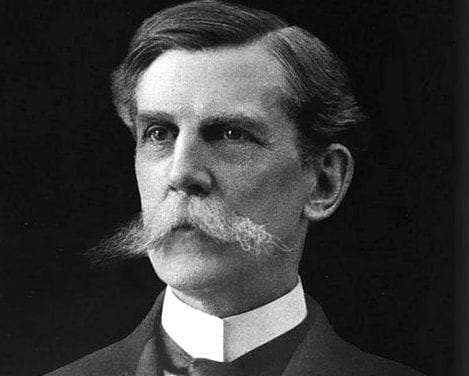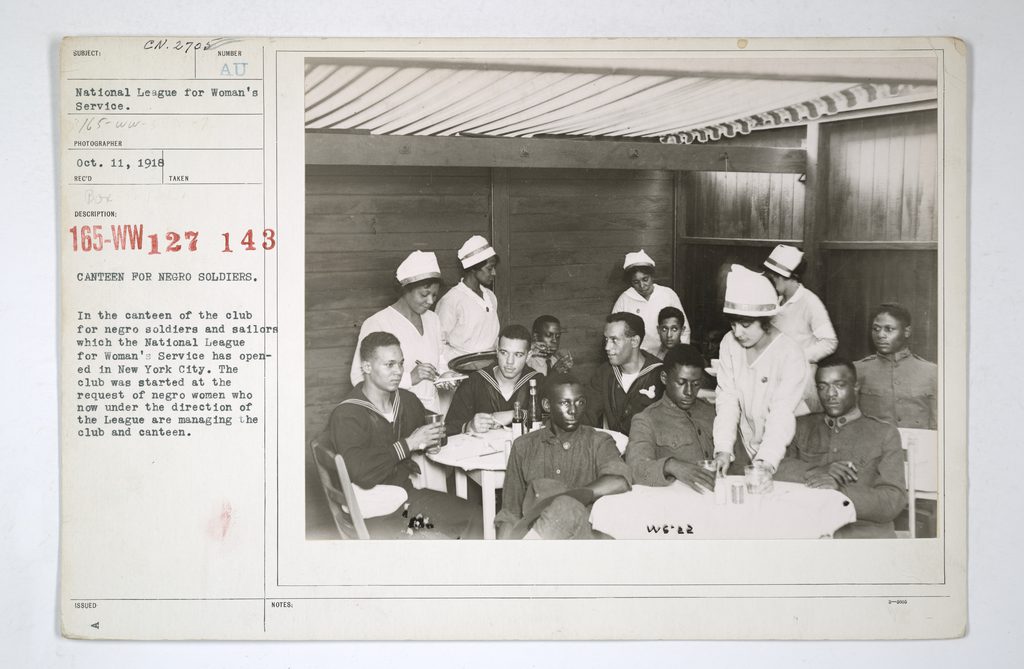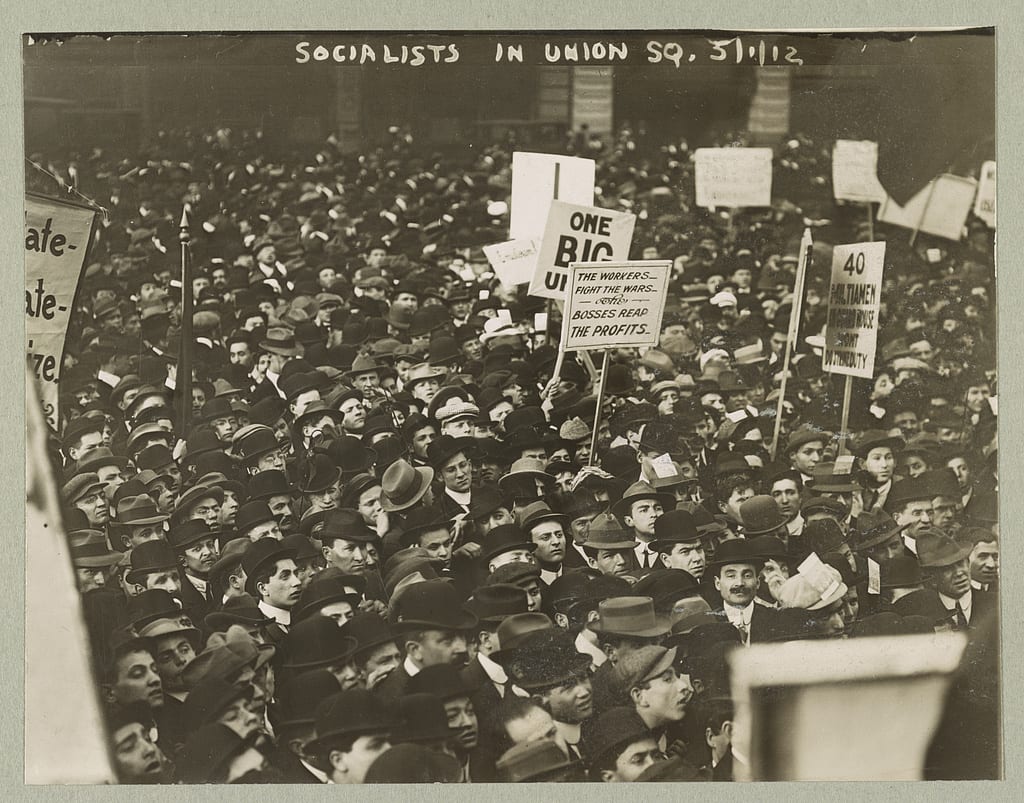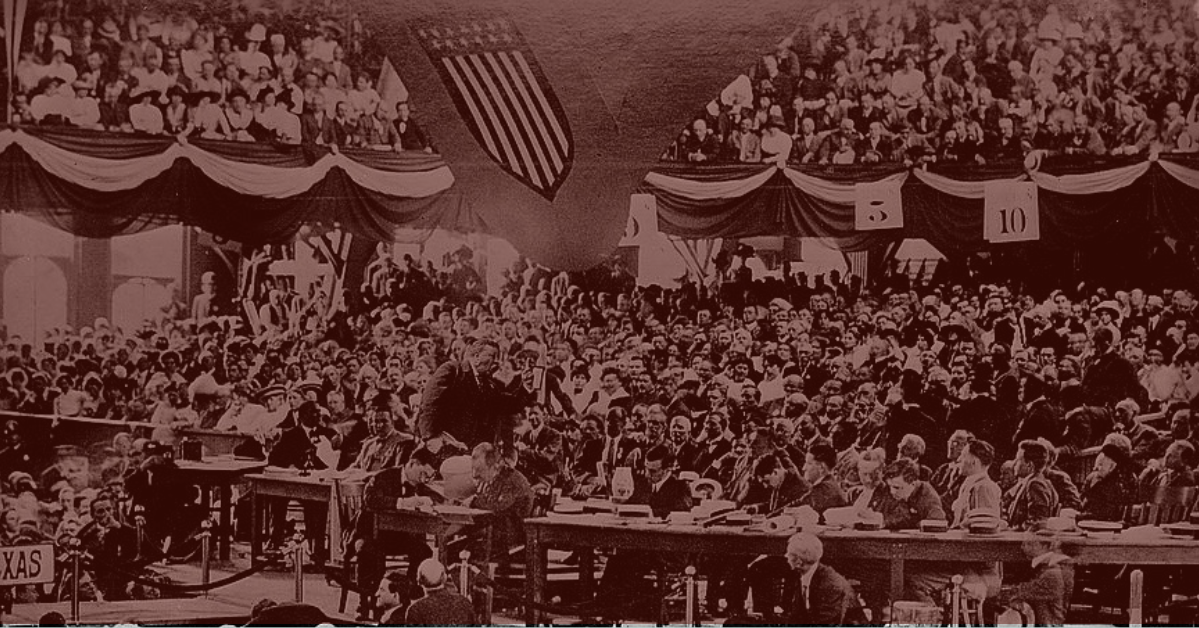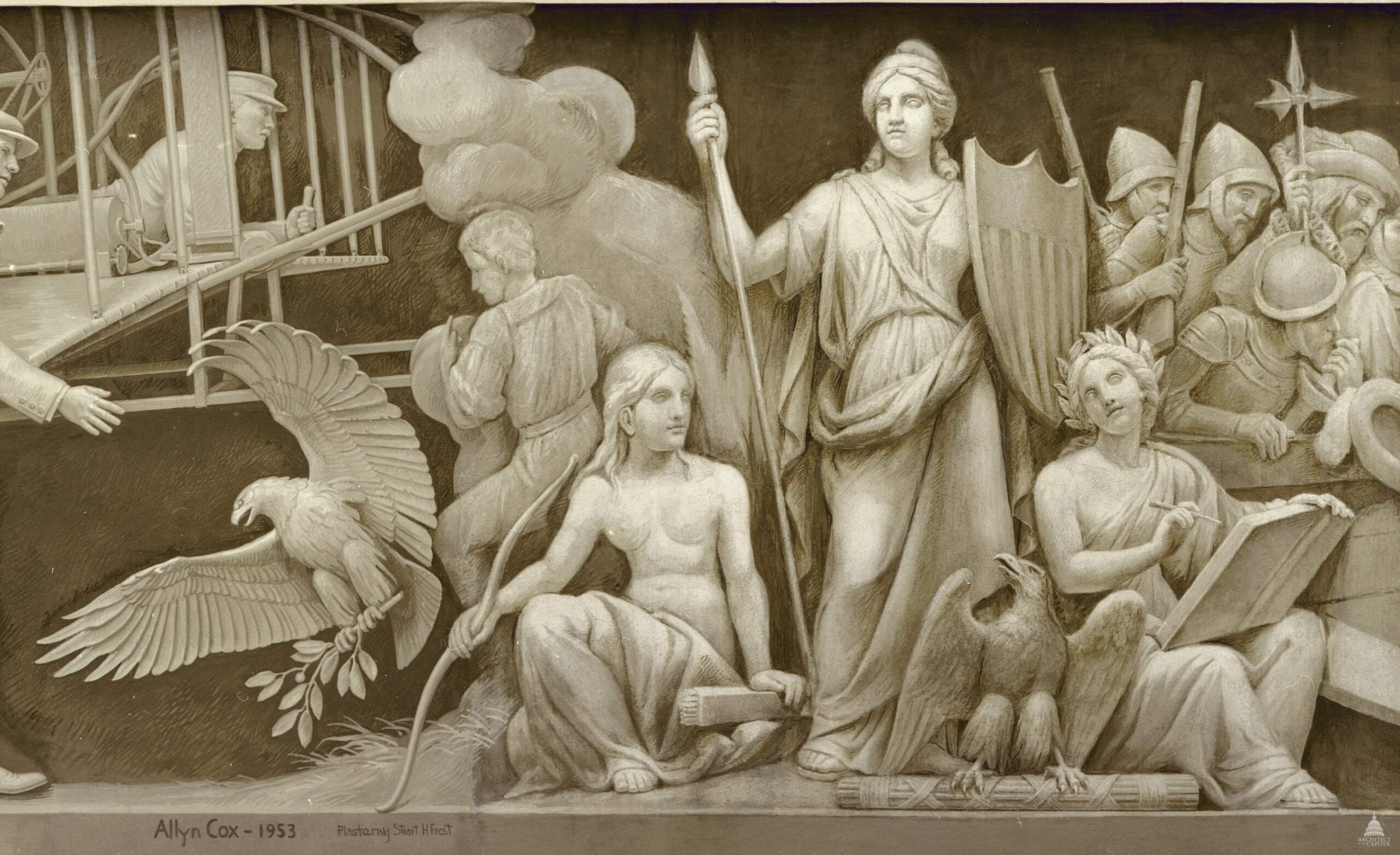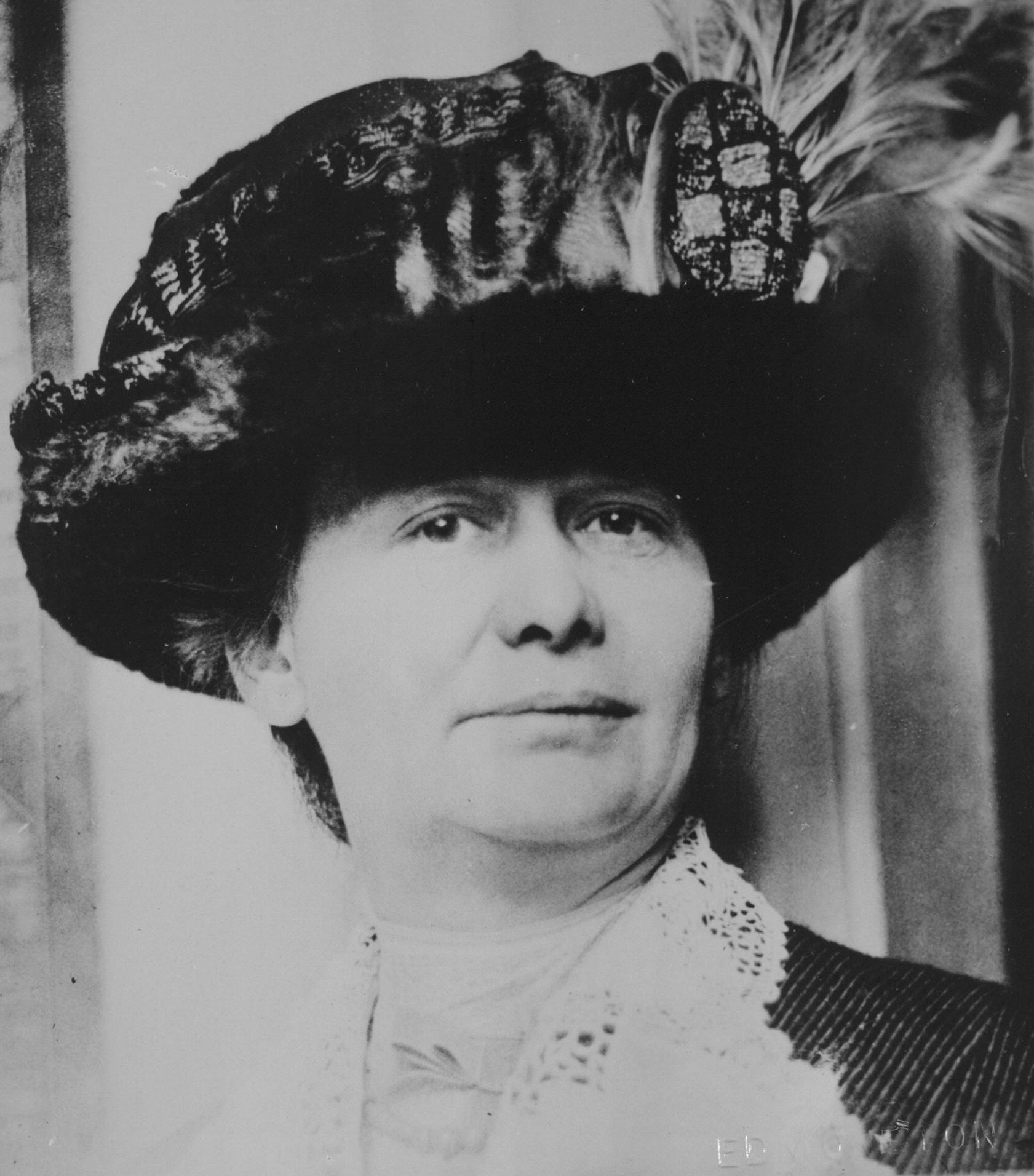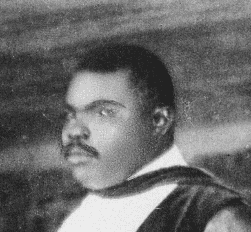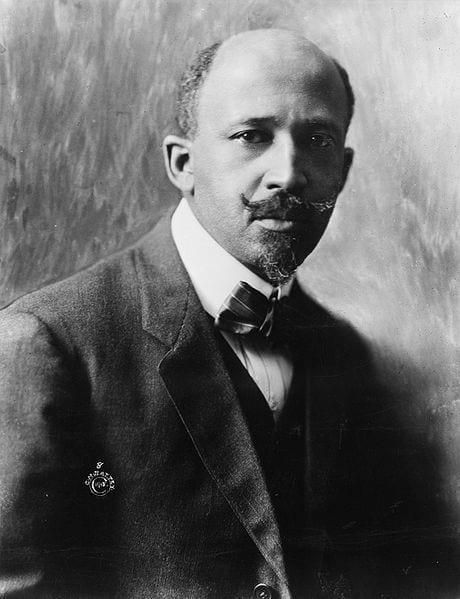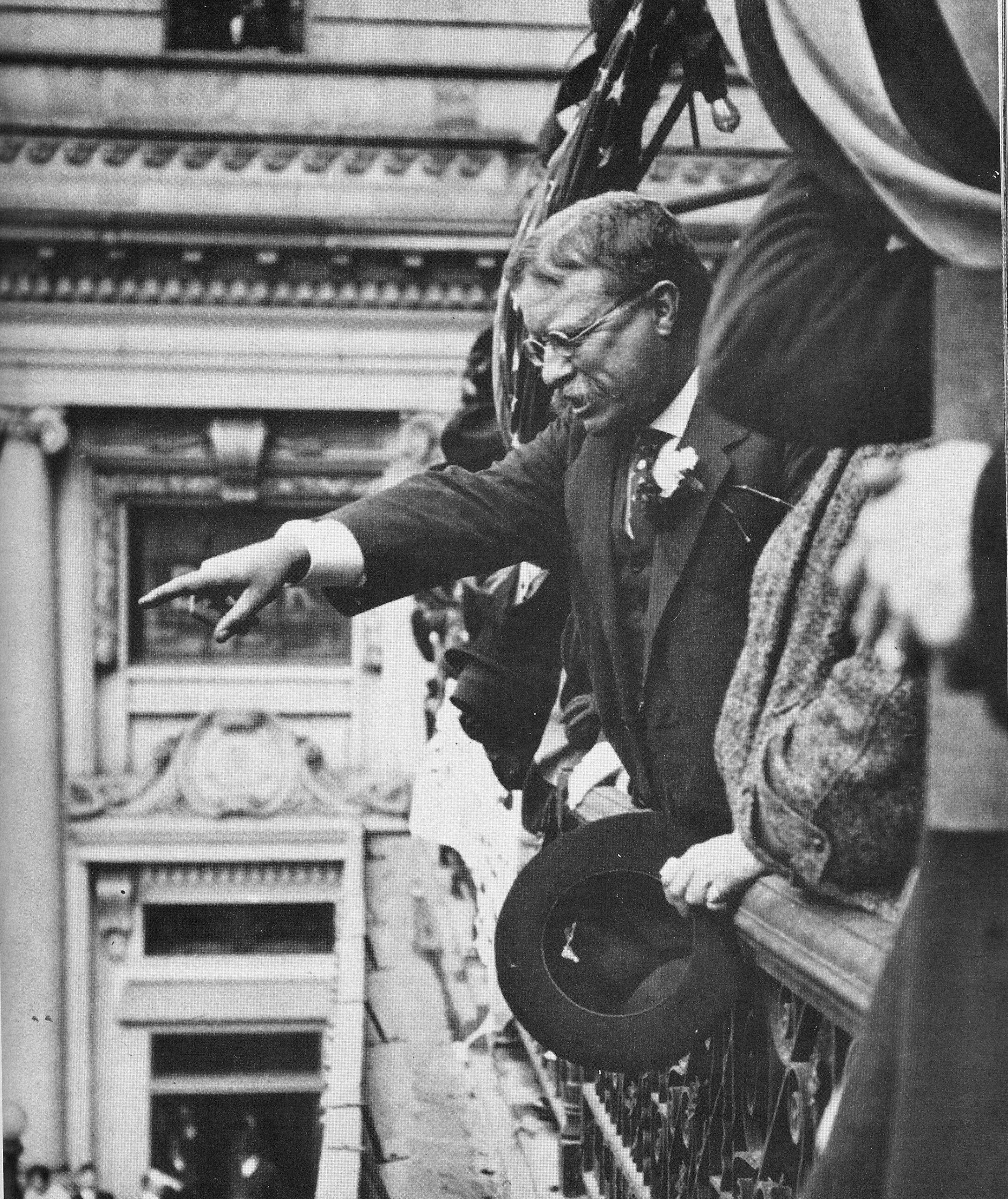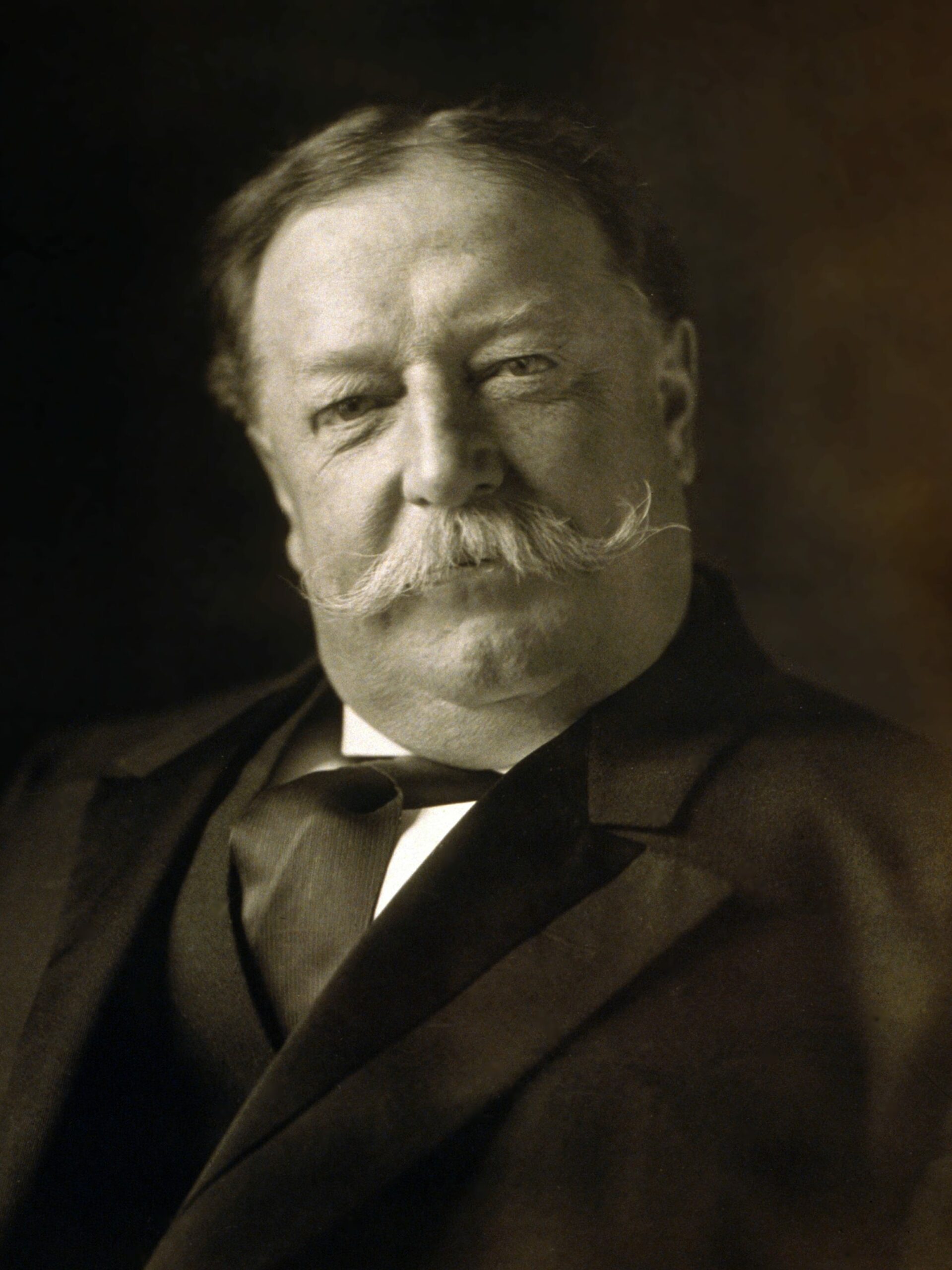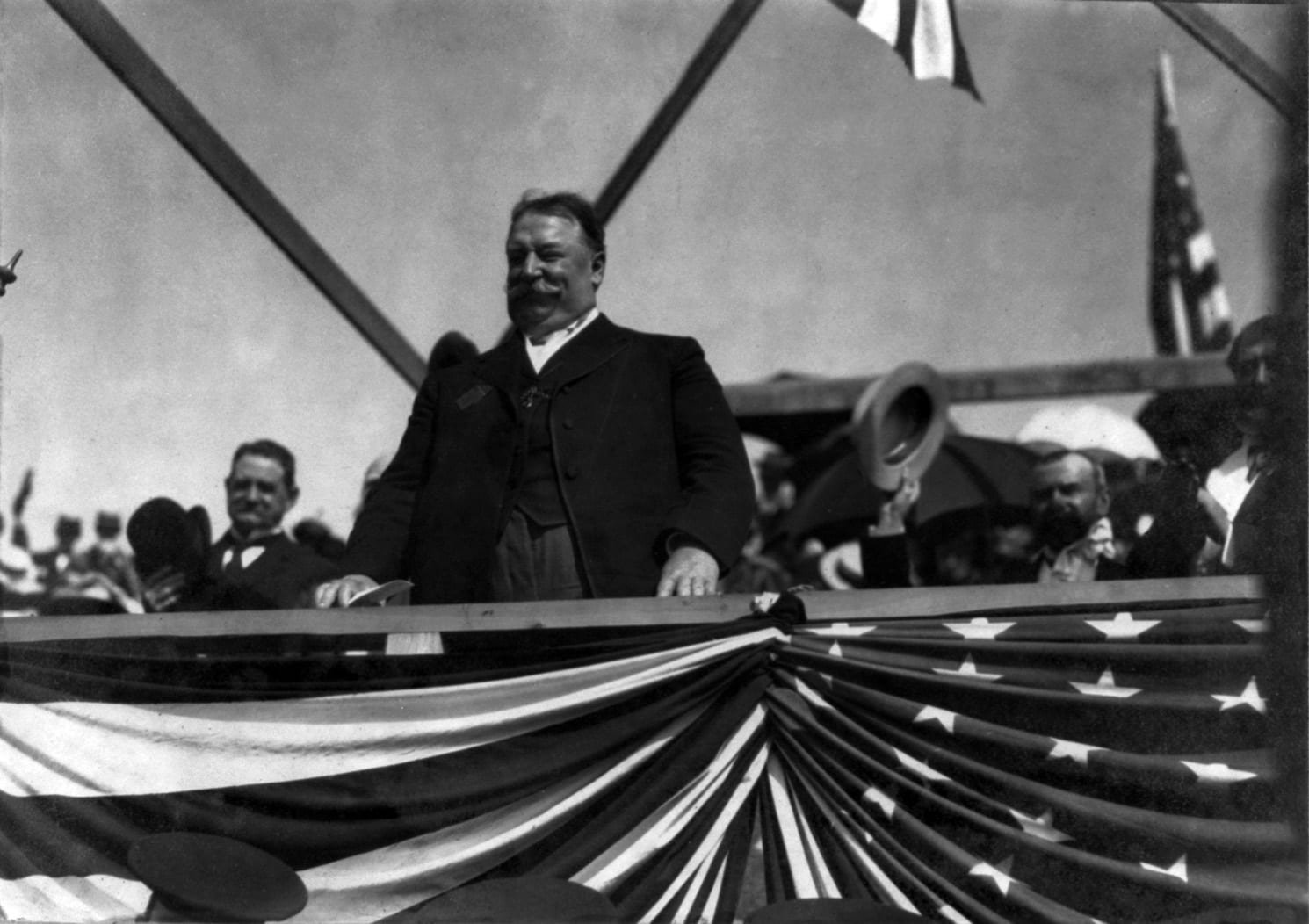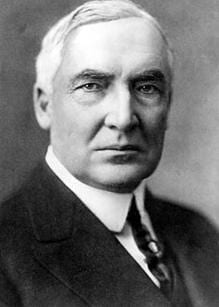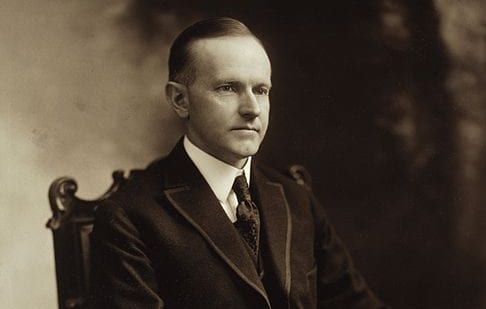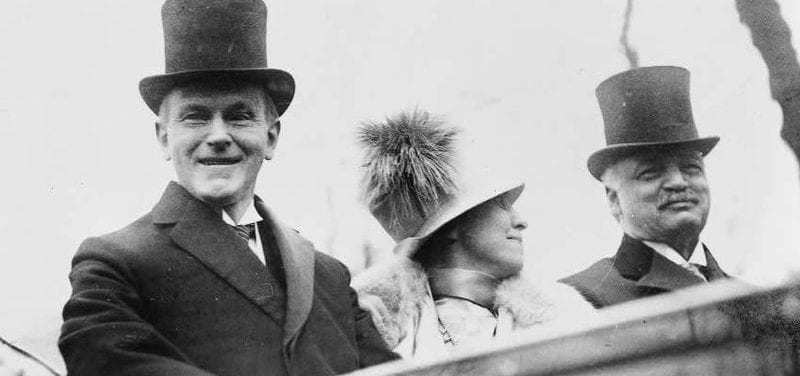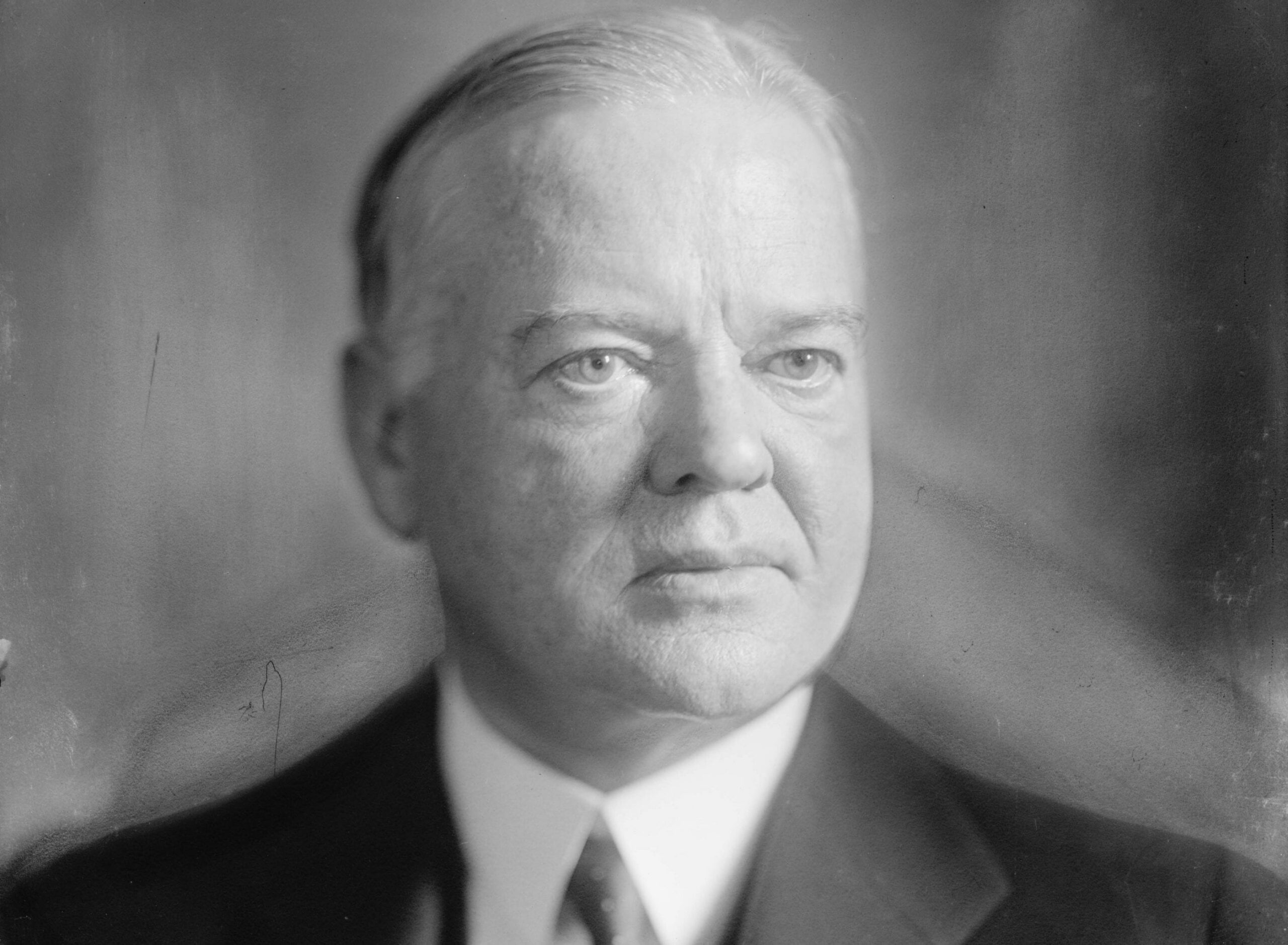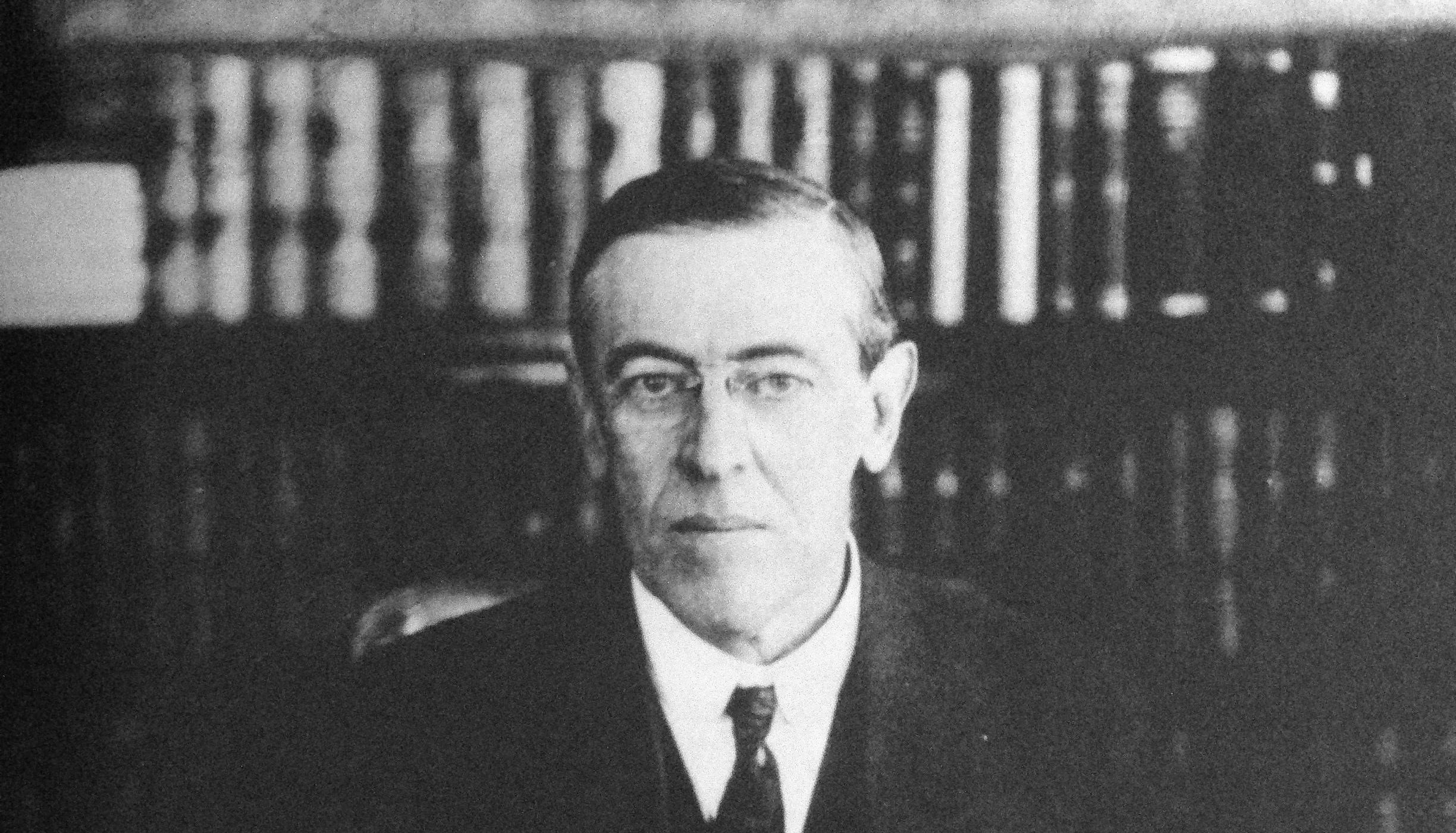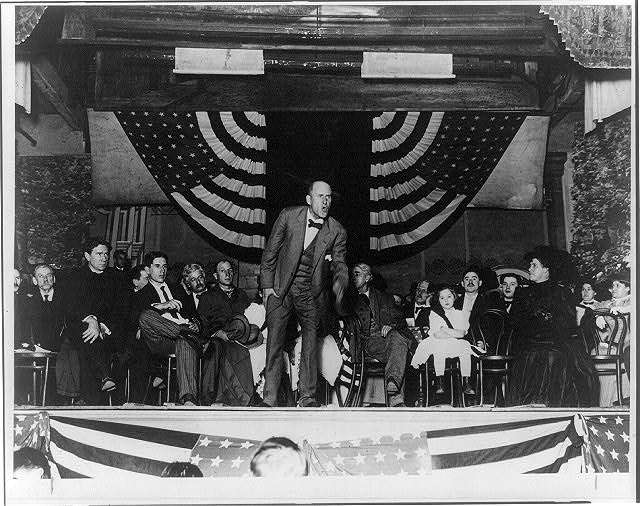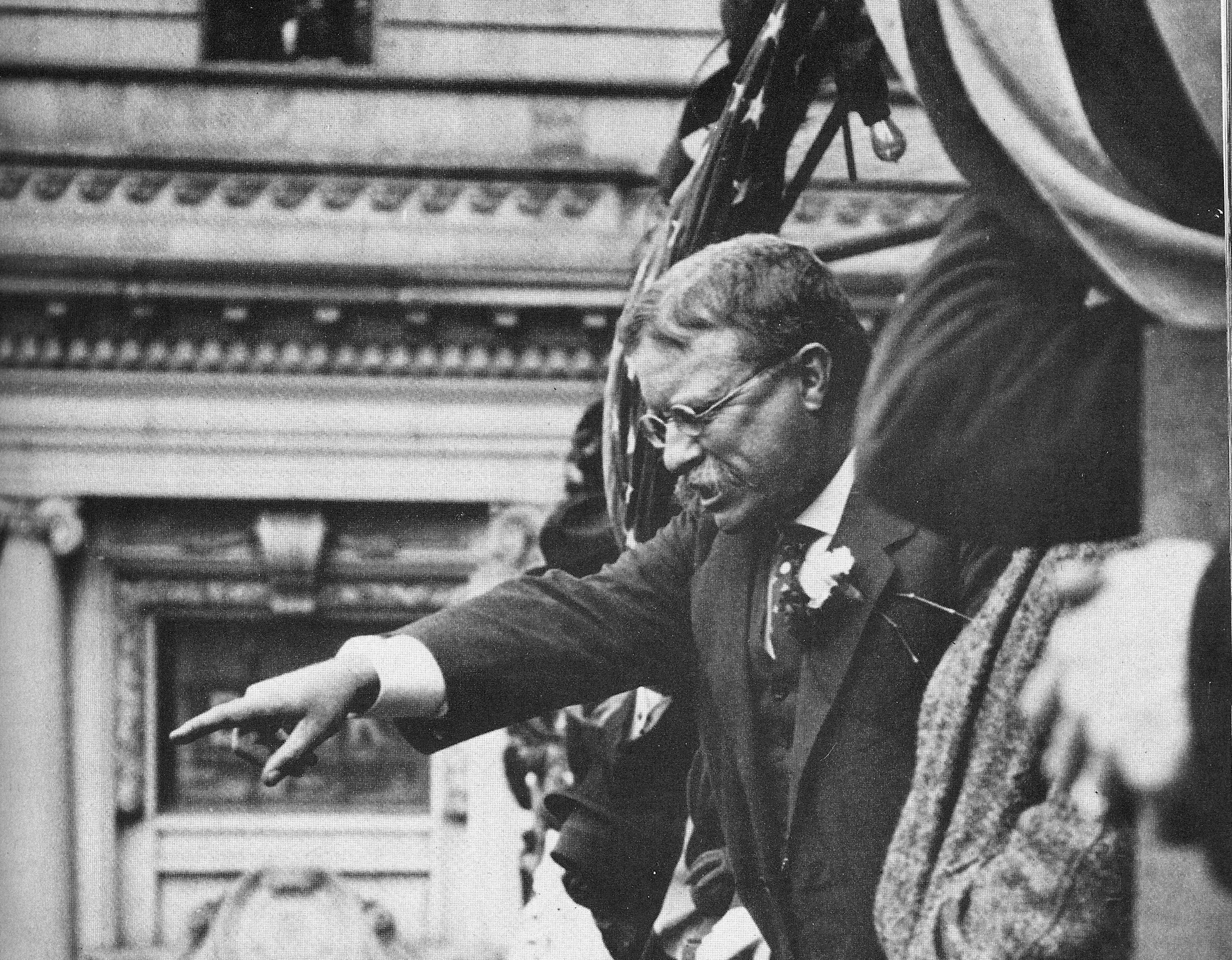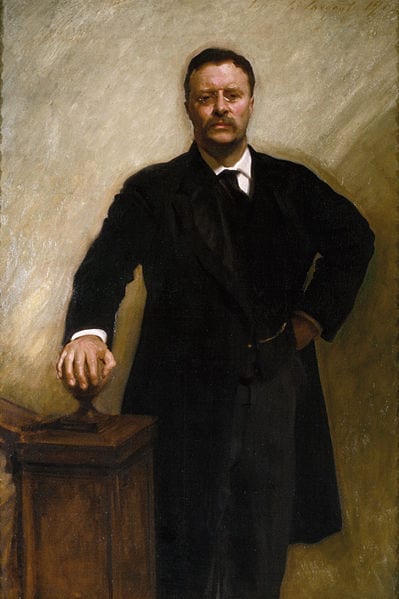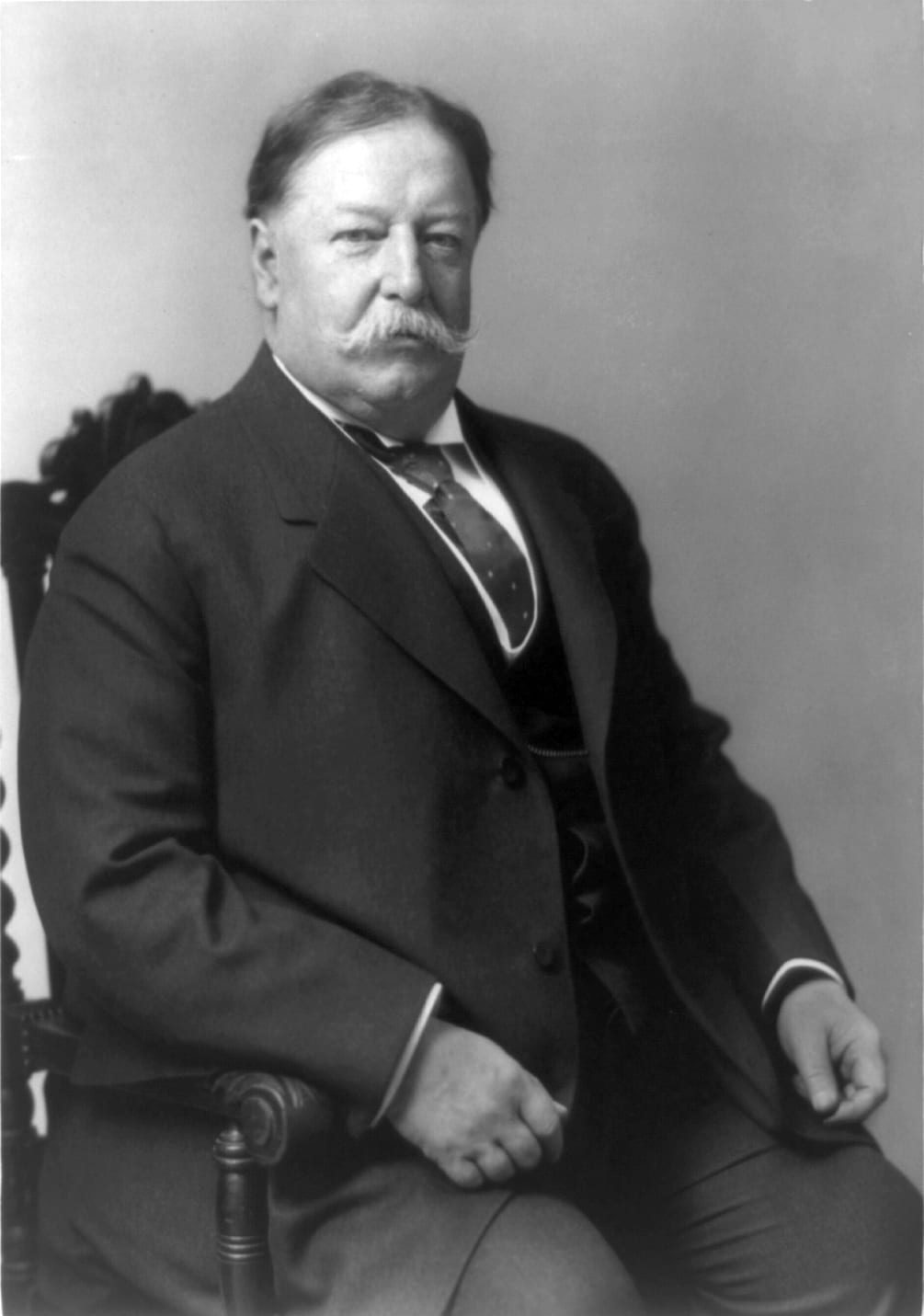
No study questions
No related resources
THE WHITE HOUSE, December 7, 1911
To the Senate and House of Representatives:
The relations of the United States with other countries have continued during the past twelve months upon a basis of the usual good will and friendly intercourse.
ARBITRATION.
The year just passed marks an important general movement on the part of the Powers for broader arbitration. In the recognition of the manifold benefits to mankind in the extension of the policy of the settlement of international disputes by arbitration rather than by war, and in response to a widespread demand for an advance in that direction on the part of the people of the United States and of Great Britain and of France, new arbitration treaties were negotiated last spring with Great Britain and France, the terms of which were de signed, as expressed in the preamble of these treaties, to extend the scope and obligations of the policy of arbitration adopted in our present treaties with those Governments To pave the way for this treat with the United States, Great Britain negotiated an important modification in its alliance with Japan, and the French Government also expedited the negotiations with signal good will. The new treaties have been submitted to the Senate and are awaiting its advice and consent to their ratification. All the essentials of these important treaties have long been known, and it is my earnest hope that they will receive prompt and favorable action.
CLAIM OF ALSOP & CO. SETTLED.
I am glad to report that on July 5 last the American claim of Alsop & Co. against the Government of Chile was finally disposed of by the decision of His Britannic Majesty George V, to whom, as amiable compositeur, the matter had been referred for determination. His Majesty made an award of nearly $1,000,000 to the claimants, which was promptly paid by Chile. The settlement of this controversy has happily eliminated from the relations between the Republic of Chile and the United States the only question which for two decades had given the two foreign offices any serious concern and makes possible the unobstructed development of the relations of friendship which it has been the aim of this Government in every possible way to further and cultivate.
ARBITRATIONS-PANAMA AND COSTA RICA-COLOMBIA AND HAITI.
In further illustration of the practical and beneficent application of the principle of arbitration and the underlying broad spirit of conciliation, I am happy to advert to the part of the United States in facilitating amicable settlement of disputes which menaced the peace between Panama and Costa Rica and between Haiti and the Dominican Republic.
Since the date of their independence, Colombia and Costa Rica had been seeking a solution of a boundary dispute, which came as an heritage from Colombia to the new Republic of Panama, upon its beginning life as an independent nation. Although the disputants had submitted this question for decision to the President of France under the terms of an arbitration treaty, the exact interpretation of the provisions of the award rendered had been a matter of serious disagreement between the two countries, both contending for widely different lines even under the terms of the decision. Subsequently and since T903 this boundary question bad been the subject of fruitless diplomatic negotiations between the parties. In January, 1910, at the request of both Governments the agents representing them met in conference at the Department of State and subsequently concluded a protocol submitting this long-pending controversy to the arbitral judgment of the Chief justice of the United States, who consented to act in this capacity. A boundary commission, according to the international agreement, has now been appointed, and it is expected that the arguments will shortly proceed and that this long-standing dispute will be honorably and satisfactorily terminated.
Again, a few months ago it appeared that the Dominican Republic and Haiti were about to enter upon hostilities because of complications growing out of an acrimonious boundary dispute which the efforts of many years had failed to solve. The Government of the United States, by a friendly interposition of good offices, succeeded in prevailing upon the parties to place their reliance upon some form of pacific settlement. Accordingly, on the friendly suggestion of this Government, the two Governments empowered commissioners to meet at Washington in conference at the State Department in order to arrange the terms of submission to arbitration of the boundary controversy.
CHAMIZAL ARBITRATION NOT SATISFACTORY.
Our arbitration of the Chamizal boundary question with Mexico was unfortunately abortive, but with the earnest efforts on the part of both Governments which its importance commands, it is felt that an early practical adjustment should prove possible.
LATIN AMERICA.
VENEZUELA.
During the past year the Republic of Venezuela celebrated the one hundredth anniversary of its independence. The United States sent, in honor of this event, a special embassy to Caracas, where the cordial reception and generous hospitality shown it were most gratifying as a further proof of the good relations and friendship existing between that country and the United States.
MEXICO.
The recent political events in Mexico received attention from this Government because of the exceedingly delicate and difficult situation created along our southern border and the necessity for taking measures properly to safeguard American interests. The Government of the United States, in its desire to secure a proper observance and enforcement of the so-called neutrality statutes of the Federal Government, issued directions to the appropriate officers to exercise a diligent and vigilant regard for the requirements of such rules and laws. Although a condition of actual armed conflict existed, there was no official recognition of belligerency involving the technical neutrality obligations of international law.
On the 6th of March last, in the absence of the Secretary of State, I had a personal interview with Mr. Wilson, the ambassador of the United States to Mexico, in which he reported to me that the conditions in Mexico were much more critical than the press dispatches disclosed; that President Diaz was on a volcano of popular uprising; that the small outbreaks which had occurred were only symptomatic of the whole condition; that a very large per cent of the people were in sympathy with the insurrection; that a general explosion was probable at any time, in which case he feared that the 40,000 or more American residents in Mexico might be assailed, and that the very large American investments might be injured or destroyed.
After a conference with the Secretary of War and the Secretary of the Navy, I thought it wise to assemble an Army division of full strength at San Antonio, Tex., a brigade of three regiments at Galveston, a brigade of Infantry in the Los Angeles district of southern California, together with a squadron of battleships and cruisers and transports at Galveston, and a small squadron of ships at San Diego. At the same time, through our representative at the City of Mexico, I expressed to President Diaz the hope that no apprehensions might result from unfounded conjectures as to these military maneuvers, and assured him that they had no significance which should cause concern to his Government.
The mobilization was effected with great promptness, and on the 15th of March, through the Secretary of War and the Secretary of the Navy, in a letter addressed to the Chief of Staff, I issued the following instructions:
It seems my duty as Commander in Chief to place troops in sufficient number where, if Congress shall direct that they enter Mexico to save American lives and property, an effective movement may be promptly made. Meantime, the movement of the troops to Texas and elsewhere near the boundary, accompanied with sincere assurances of the utmost goodwill toward the present Mexican Government and with larger and more frequent patrols along the border to prevent insurrectionary expeditions from American soil, will hold up the hands of the existing Government and will have a healthy moral effect to prevent attacks upon Americans and their property in any subsequent general internecine strife. Again, the sudden mobilization of a division of troops has been a great test of our Army and full of useful instruction, while the maneuvers that are thus made possible can occupy the troops and their officers to great advantage.The assumption by the press that I contemplate intervention on Mexican soil to protect American lives or property is of course gratuitous, because I seriously doubt whether I have such authority under any circumstances, and if I had I would not exercise it without express congressional approval. Indeed, as you know, I have already declined, without Mexican consent, to order a troop of Cavalry to protect the breakwater we are constructing just across the border in Mexico at the mouth of the Colorado River to save the Imperial Valley, although the insurrectos had scattered the Mexican troops and were taking our horses and supplies and frightening our workmen away. My determined purpose, however, is to be in a position so that when danger to American lives and property in Mexico threatens and the existing Government is rendered helpless by the insurrection, I can promptly execute congressional orders to protect them, with effect.
Meantime, I send you this letter, through the Secretary, to call your attention to some things in connection with the presence of the division in the Southwest which have doubtless occurred to you, but which I wish to emphasize.
In the first place, I want to make the mobilization a first-class training for the Army, and I wish you would give your time and that of the War College to advising and carrying out maneuvers of a useful character, and plan to continue to do this during the next three months. By that time we may expect that either Ambassador Wilson's fears will have been realized and chaos and its consequences have ensued, or that the present Government of Mexico will have so readjusted matters as to secure tranquillity-a result devoutly to be wished. The troops can then be returned to their posts. I understood from you in Washington that Gen. Aleshire said that you could probably meet all the additional expense of this whole movement out of the present appropriations if the troops continue in Texas for three months. I sincerely hope this is so. I observe from the newspapers that you have no blank cartridges, but I presume that this is an error, or that it will be easy to procure those for use as soon as your maneuvers begin.
Second. Texas is a State ordinarily peaceful, but you can not put 20,000 troops into it without running some risk of a collision between the people of that State, and especially the -Mexicans who live in Texas near the border and who sympathize with the insurrectos, and the Federal soldiers. For that reason I beg you to be as careful as you can to prevent friction of any kind. We were able in Cuba, with the army of pacification there of something more than 5,000 troops, to maintain them for a year without any trouble, and I hope you can do the same thing in Texas. Please give your attention to this, and advise all the officers in command of the necessity for very great circumspection in this regard.
Third. One of the great troubles in the concentration of troops is the danger of disease, and I suppose that you have adopted the most modern methods for preventing and, if necessary, for stamping out epidemics. That is so much a part of a campaign that it hardly seems necessary for me to call attention to it.
Finally, I wish you to examine the question of the patrol of the border and put as many troops on that work as is practicable, and more than are now engaged in it, in order to prevent the use of our borderland for the carrying out of the insurrection. I have given assurances to the Mexican ambassador on this point.
I sincerely hope that this experience will always be remembered by the Army and Navy as a useful means of education, and I should be greatly disappointed if it resulted in any injury or disaster to our forces from any cause. I have taken a good deal of responsibility in ordering this mobilization, but I am ready to answer for it if only you and those under you use the utmost care to avoid the difficulties which I have pointed out.
You may have a copy of this letter made and left with Gen. Carter and such other generals in command as you may think wise and necessary to guide them in their course, but to be regarded as confidential.
I am more than happy to here record the fact that all apprehensions as to the effect of the presence of so large a military force in Texas proved groundless; no disturbances occurred; the conduct of the troops was exemplary and the public reception and treatment of them was all that could have been desired, and this notwithstanding the presence of a large number of Mexican refugees in the border territory.
From time to time communications were received from Ambassador Wilson, who had returned to Mexico, confirming the view that the massing of American troops in the neighborhood had had good effect. By dispatch of April 3, 1911, the ambassador said:
The continuing gravity of the situation here and the chaos that would ensue should the constitutional authorities be eventually overthrown, thus greatly increasing the danger to which American lives and property are already subject, confirm the wisdom of the President in taking those military precautions which, making every allowance for the dignity and the sovereignty of a friendly state, are due to our nationals abroad.Charged as I am with the responsibility of safeguarding these lives and property, I am bound to say to the department that our military dispositions on the frontier have produced an effective impression on the Mexican mind and may, at any moment, prove to be the only guaranties for the safety of our nationals and their property. If it should eventuate that conditions here require more active measures by the President and Congress, sporadic attacks might be made upon the lives and property of our nationals, but the ultimate result would be order and adequate protection.
The insurrection continued and resulted In engagements between the regular Mexican troops and the insurgents, and this along the border, so that in several instances bullets from the contending forces struck American citizens engaged in their lawful occupations on American soil.
Proper protests were made against these invasions of American rights to the Mexican authorities. On April 17, 1911, 1 received the following telegram from the governor of Arizona:
As a result of to-day's fighting across the international line, but within gunshot range of the heart of Douglas, five Americans wounded on this side of the line. Everything points to repetition of these casualties on to-morrow, and while the Federals seem disposed to keep their agreement not to fire into Douglas, the position of the insurrectionists is such that when fighting occurs on the east and southeast of the intrenchments people living in Douglas are put in danger of their lives. In my judgment radical measures are needed to protect our innocent people, and if anything can be done to stop the fighting at Agua Prieta the ,ittiation calls for such action. It is impossible to safeguard the people of Douglas unless the town be vacated. Can anything be done to relieve situation, now acute?
After a conference with the Secretary of State, the following telegram was sent to Governor Sloan, on April IS, 1911 9 11, and made public:
Your dispatch received. Have made urgent demand upon Mexican Government to issue instructions to prevent firing across border by Mexican federal troops, and am waiting reply. Meantime I have sent direct warning to the Mexican and insurgent forces near Douglas. I infer from your dispatch that both parties attempt to heed the warning, but that in the strain and exigency of the contest wild bullets still find their way into Douglas. The situation might justify me in ordering our troops to cross the border and attempt to stop the fighting, or to fire upon both combatants from the American side. But if I take this step, I must face the possibility of resistance and greater bloodshed, and also the danger of having our motives misconstrued and misrepresented, and of thus inflaming Mexican popular indignation against many thousand Americans now in Mexico and jeopardizing their lives and property. The pressure for general intervention under such conditions it might not be practicable to resist. It is impossible to foresee or reckon the consequences of such a course, and we must use the greatest self-restraint to avoid it. Pending my urgent representation to the Mexican Government, I can not therefore order the troops at Douglas to cross the border, but I must ask you and the local authorities, in case the same danger recurs, to direct the people of Douglas to place themselves where bullets can not reach them and thus avoid casualty. I am loath to endanger Americans in 'Mexico, where they are necessarily exposed, by taking a radical step to prevent injury to Americans on our side of the border who can avoid it by a temporary inconvenience.
I am glad to say that no further invasion of American rights of any substantial character occurred.
The presence of a large military and naval force available for prompt action, near the Mexican border, proved to be most fortunate under the somewhat trying conditions presented by this invasion of American rights Had no movement theretofore taken place, and because of these events it had been necessary then to bring about the mobilization, it must have bad sinister significance. On the other hand, the presence of the troops before and at the time of the unfortunate killing and wounding of American citizens at Douglas, made clear that the restraint exercised by our Government in regard to this Occurrence was not due to lack of force or power to deal with it promptly and aggressively, but was due to a real desire to use every means possible to avoid direct intervention in the affairs of our neighbor whose friendship we valued and were most anxious to retain.
The policy and action of this Government were based upon an earnest friendliness for the Mexican people as a whole, and it is a matter of gratification to note that this attitude of strict impartiality as to all factions in Mexico and of sincere friendship for the neighboring nation, without regard for party allegiance, has been generally recognized and has resulted in an even closer and more sympathetic understanding between the two Republics and a warmer regard one for the other. Action to suppress violence and restore tranquillity throughout the Mexican Republic was of peculiar interest to this Government, in that it concerned the safeguarding of American life and property in that country. The Government of the United States had occasion to accord permission for the passage of a body of Mexican rurales through Douglas, Arizona, to Tia Juana, Mexico, for the suppression of general lawlessness which bad for some time existed in the region of northern Lower California. On May 25, 1911, President Diaz resigned, Senor de la Barra was chosen provisional President. Elections for President and Vice President were thereafter held throughout the Republic, and Senor Francisco 1. Madero was formally declared elected on October 15 to the chief magistracy. On November 6 President Madero entered upon the duties of his office.
Since the inauguration of President Madero a plot has been unearthed against the present Government, to begin a new insurrection. Pursuing the same consistent policy which this administration has adopted from the beginning, it directed an investigation into the conspiracy charged, and this investigation has resulted in the indictment of Gen. Bernardo Reyes and others and the seizure of a number of officers and men and horses and accoutrements assembled upon the soil of Texas for the purpose of invading Mexico. Similar proceedings had been taken during the insurrection against the Diaz Government resulting in the indictments and prosecution of persons found to be engaged in violating the neutrality laws of the United States in aid of that uprising.
The record of this Government in respect of the recognition of constituted authority in Mexico therefore is clear.
CENTRAL AMERICA-HONDURAS AND NICARAGUA TREATIES PROPOSED.
As to the situation in Central America, I have taken occasion in the past to emphasize most strongly the importance that should be attributed to the consummation of the conventions between the Republics of Nicaragua and of Honduras and this country, and I again earnestly recommend that the necessary advice and consent of the Senate be accorded to these treaties, which will make it possible for these Central American Republics to enter upon an era of genuine economic national development. The Government of Nicaragua which has already taken favorable action on the convention, has found it necessary, pending the exchange of final ratifications, to enter into negotiations with American bankers for the purpose of securing a temporary loan to relieve the present financial tension. III connection with this temporary loan and in the hope of consummating, through the ultimate operation of the convention, a complete and lasting economic regeneration, the Government of Nicaragua has also decided to engage an American citizen as collector general of customs. The claims commission on which the services of two American citizens have been sought, and the work of the American financial adviser should accomplish a lasting good of inestimable benefit to the prosperity, commerce, and peace of the Republic. In considering the ratification of the conventions with Nicaragua and Honduras, there rests with the United States the heavy responsibility of the fact that their rejection here might destroy the progress made and consign the Republics concerned to still deeper submergence in bankruptcy, revolution, and national jeopardy.
PANAMA.
Our relations with the Republic of Panama, peculiarly important, due to mutual obligations and the vast interests created by the canal, have continued in the usual friendly manner, and we have been glad to make appropriate expression of our attitude of sympathetic interest in the endeavors of our neighbor in undertaking the development of the rich resources of the country. With reference to the internal political affairs of the Republic, our obvious concern is in the maintenance of public peace and constitutional order, and the fostering of the general interests created by the actual relations of the two countries, without the manifestation of any preference for the success of either of the political parties.
THE PAN AMERICAN UNION.
The Pan American Union, formerly known as the Bureau of American Republics, maintained by the joint contributions of all the American nations, has during the past year enlarged its practical work as an international organization, and continues to prove its usefillness as an agency for the mutual development of commerce, better acquaintance, and closer intercourse between the United States and her sister American republics.
THE FAR EAST.
THE CHINESE LOANS.
The past year has been marked in our relations with China by the conclusion of two important international loans, one for the construction of the Hukuang railways, the other for carrying out of the currency reform to which China was pledged by treaties with the United States, Great Britain, and Japan, of which mention was made in my last annual message.
It will be remembered that early in 1909 an agreement was consummated among British, French, and German financial groups whereby they proposed to lend the Chinese Government funds for the construction of railways in the Provinces of Hunan and Hupeh, reserving for their nationals the privilege of engineering the construction of the lines and of furnishing the materials required for the work. After negotiations with the Governments and groups concerned an agreement was reached whereby American, British, French, and German nationals should participate upon equal terms in this important and useful undertaking. Thereupon the financial groups, supported by their respective Governments, began negotiations with the Chinese Government which terminated in a loan to China Of $30,000,000, with the privilege of increasing the amount to $50,000,000. The cooperative construction of these trunk lines should be of immense advantage, materially and otherwise, to China and should greatly facilitate the development of the bountiful resources of the Empire. On the other hand, a large portion of these funds is to be expended for materials, American products having equal preference with those of the other three lending nations, and as the contract provides for branches and extensions subsequently to be built on the same terms the opportunities for American materials will reach considerable proportions.
Knowing the interest of the United States in the reform of Chinese currency, the Chinese Government, in the autumn of 1910 sought the assistance of the American Government to procure funds with which to accomplish that all-important reform. In the course of the subsequent negotiations there was combined with the proposed currency loan one for certain industrial developments in Manchuria, the two loans aggregating the sum Of $50,000,000. While this was originally to be solely an American enterprise, the American Government, consistently with its desire to secure a sympathetic and practical cooperation of the great powers toward maintaining the principle of equality of opportunity and the administrative integrity of China, urged the Chinese Government to admit to participation in the currency loan the associates of the American group in the Hukuang loan. While of immense importance in itself, the reform contemplated in making this loan is but preliminary to other and more comprehensive fiscal reforms which will be of incalculable benefit to China and foreign interests alike, since they will strengthen the Chinese Empire and promote the rapid development of international trade.
NEUTRAL FINANCIAL ADVISER.
When these negotiations were begun, it was understood that a financial adviser was to be employed by China in connection with the reform, and in order that absolute equality in all respects among the lending nations might be scrupulously observed, the American Government proposed the nomination of a neutral adviser, which was agreed to by China and the other Governments concerned. On September 28, 1911, Dr. Vissering, president of the Dutch Java Bank and a financier of wide experience in the Orient, was recommended to the Chinese Government for the post of monetary adviser.
Especially important at the present, when the ancient Chinese Empire is shaken by civil war incidental to its awakening to the many influences and activities of modernization, are the cooperative policy of good understanding which has been fostered by the international projects referred to above and the general sympathy of view among all the Powers interested in the Far East. While safeguarding the interests of our nationals, this Government is using its best efforts in continuance of its traditional policy of sympathy and friendship toward the Chinese Empire and its people, with the confident hope for their economic and administrative development, and with the constant disposition to contribute to their welfare in all proper ways consistent with an attitude of strict impartiality as between contending factions.
For the first time in the history of the two countries, a Chinese cruiser, the Haichi, under the command of Admiral Ching, recently visited New York, where the officers and men were given a cordial welcome.
NEW JAPANESE TREATY.
The treaty of commerce and navigation between the United States and Japan, signed in 1894, would by a strict interpretation of its provisions have terminated on July 17, 1912. Japan's general treaties with the other powers, however, terminated in 1911, and the Japanese Government expressed an earnest desire to conduct the negotiations for a new treaty with the United States simultaneously with its negotiations with the other powers. There were a number of important questions involved in the treaty, including the immigration of laborers, revision of the customs tariff, and the right of Americans to hold real estate in Japan. The United States consented to waive all technicalities and to enter at once upon negotiations for a new treaty on the understanding that there should be a continuance throughout the, life of the treaty of the same effective measures for the restriction of immigration of laborers to American territory which had been in operation with entire satisfaction to both Governments since 1908. The Japanese Government accepted this basis of negotiation, and a new treaty was quickly concluded, resulting in a highly satisfactory settlement of the other questions referred to.
A satisfactory adjustment has also been effected of the questions growing out of the annexation of Korea by Japan.
The recent visit of Admiral Count Togo to the United States as the Nation's guest afforded a welcome opportunity to demonstrate the friendly feeling so happily existing between the two countries.
SIAM.
There has been a change of sovereigns in Siam and the American minister at Bangkok was accredited in a special capacity to represent the United States at the coronation ceremony of the new King.
EUROPE AND THE NEAR EAST.
In Europe and the Near East, during the past twelve-month, there has been at times considerable political unrest. The Moroccan question, which for some months was the cause of great anxiety, happily appears to have reached a stage at which it need no longer be regarded with concern. The Ottoman Empire was occupied for a period by strife in Albania and is now at war with Italy. In Greece and the Balkan countries the disquieting potentialities of this situation have been more or less felt. Persia has been the scene of a long internal struggle. These conditions have been the cause of uneasiness in European diplomacy, but thus far without direct political concern to the United States.
In the war which unhappily exists between Italy and Turkey this Government has no direct political interest, and I took occasion at the suitable time to issue a proclamation of neutrality in that conflict. At the same time all necessary steps have been taken to safeguard the personal interests of American citizens and organizations in so far as affected by the war.
COMMERCE WITH THE NEAR EAST.
In spite of the attendant economic uncertainties and detriments to commerce, the United States has gained markedly in its commercial standing with certain of the nations of the Near East. Turkey, especially, is beginning to come into closer relations with the United States through the new interest of American manufacturers and exporters in the possibilities of those regions, and it is hoped that foundations are being laid for a large and mutually beneficial exchange of commodities between the two countries. This new interest of Turkey in American goods is indicated by the fact that a party of prominent merchants from a large city in Turkey recently visited the United States to study conditions of manufacture and export here, and to get into personal touch with American merchants, with a view to cooperating more intelligently in opening up the markets of Turkey and the adjacent countries to our manufactures. Another indication of this new interest of America in the commerce of the Near East is the recent visit of a large party of American merchants and manufacturers to central and eastern Europe, where they were entertained by prominent officials and organizations of the large cities, and new bonds of friendship and understanding were established which can not but lead to closer and greater commercial interchange.
CORONATION OF KING GEORGE V.
The 22d of June of the present year marked the coronation of His Britannic Majesty King George V. In honor of this auspicious occasion I sent a special embassy to London. The courteous and cordial welcome extended to this Government's representatives by His Majesty and the people of Great Britain has further emphasized the strong bonds of friendship happily existing between the two nations.
SETTLEMENT OF LONG-STANDING DIFFERENCES WITH GREAT BRITAIN.
As the result of a determined effort on the part of both Great Britain and the United States to settle all of their outstanding differences a number of treaties have been entered into between the two countries in recent years, by which nearly all of the unsettled questions between them of any importance have either been adjusted by agreement or arrangements made for their settlement by arbitration. A number of the unsettled questions referred to consist of pecuniary claims presented by each country against the other, and in order that as many of these claims as possible should be settled by arbitration a special agreement for that purpose was entered into between the two Governments on the 18th day of August, 1910, in accordance with Article 11 of the general arbitration treaty with Great Britain of April 4, 19o8. Pursuant to the provisions of this special agreement a schedule of claims has already been agreed upon, and the special agreement, together with this schedule, received the approval of the Senate when submitted to it for that purpose at the last session of Congress. Negotiations between the two Governments for the preparation of an additional schedule of claims are already well advanced, and it is my intention to submit such schedule as soon as it is agreed upon to the Senate for its approval, in order that the arbitration proceedings may be undertaken at an early date. In this connection the attention of Congress is particularly called to the necessity for an appropriation
to cover the expense incurred in submitting these claims to arbitration.
PRESENTATION TO GERMANY OF REPLICA OF VON STEUBEN STATUE.
In pursuance of the act of Congress, approved June 23, 1910, the Secretary of State and the joint Committee on the Library entered into a contract with the sculptor, Albert Jaegers, for the execution of a bronze replica of the statue of Gen. von Steuben erected in Washington, for presentation to His Majesty the German Emperor and the German nation in recognition of the gift of the statue of Frederick the Great made by the Emperor to the people of the United States.
The presentation was made on September 2 last by representatives whom I commissioned as the special mission of this Government for the purpose.
The German Emperor has conveyed to me by telegraph, on his own behalf and that of the German people, an expression of appreciative thanks for this action of Congress.
RUSSIA .
By direction of the State Department, our ambassador to Russia has recently been having a series of conferences with the minister of foreign affairs of Russia, with a view to securing a clearer understanding and construction of the treaty of 1832 between Russia and the United States and the modification of any existing Russian regulations which may be found to interfere in any way with the full recognition of the rights of American citizens under this treaty. I believe that the Government of Russia is addressing itself seriously to the need of changing the present practice under the treaty and that sufficient progress has been made to warrant the continuance of these conferences in the hope that there may soon be removed any justification of the complaints of treaty violation now prevalent in this country.
I expect that immediately after the Christmas recess I shall be able to make a further communication to Congress on this subject.
LIBERIA .
Negotiations for the amelioration of conditions found to exist in Liberia by the American commission, undertaken through the Department of State, have been concluded and it is only necessary for certain formalities to be arranged in securing the loan which it is hoped will place that republic on a practical financial and economic footing.
RECOGNITION OF PORTUGUESE REPUBLIC.
The National Constituent Assembly, regularly elected by the vote of the Portuguese people, having on June 19 last unanimously proclaimed a republican form of government, the official recognition of the Government of the United States was given to the new Republic in the afternoon of the same day.
SPITZBERGEN ISLANDS.
Negotiations for the betterment of conditions existing in the Spitzbergen Islands and the adjustment of conflicting claims of American citizens and Norwegian subjects to lands in that archipelago are still in progress.
INTERNATIONAL CONVENTIONS AND CONFERENCES.
INTERNATIONAL PRIZE COURT.
The supplementary protocol to The he Hague convention for the establishment of an international prize court, mentioned in my last annual message, embodying stipulations providing for an alternative procedure which would remove the constitutional objection to that part of The Hague convention which provides that there may be an appeal to the proposed court from the decisions of national courts, has received the signature of the governments parties to the original convention and has been ratified by the Government of the United States, together with the prize court convention.
The deposit of the ratifications with the Government of the Netherlands awaits action by the powers on the declaration, signed at London on February 26, 1909 of the rules of international law to be recognized within the meaning of article 7 of The Hague convention for the establishment of an International Prize Court.
FUR-SEAL TREATY.
The fur-seal controversy, which for nearly twenty-five years has been the source of serious friction between the United States and the powers bordering upon the north Pacific Ocean, whose subjects have been permitted to engage in pelagic sealing against the fur-seal herds having their breeding grounds within the jurisdiction of the United States, has at last been satisfactorily adjusted by the conclusion of the north Pacific sealing convention entered into between the United States, Great Britain, Japan, and Russia on the 7th of July last. This convention is a conservation measure of very great importance, and if it is carried out in the spirit of reciprocal concession and advantage upon which it is based, there is every reason to believe that not only will it result in preserving the furseal herds of the north Pacific Ocean and restoring them to their former value for the purposes of commerce, but also that it will afford a permanently satisfactory settlement of a question the only other solution of which seemed to be the total destruction of the fur seals. In another aspect, also, this convention is of importance in that it furnishes an illustration of the feasibility of securing a general international game law for the protection of other mammals of the sea, the preservation of which is of importance to all the nations of the world.
LEGISLATION NECESSARY.
The attention of Congress is especially called to the necessity for legislation on the part of the United States for the purpose of fulfilling the obligations assumed under this convention, to which the Senate gave its advice and consent on the 24th day of July last.
PROTECTION OF INDUSTRIAL PROPERTY UNION.
The conference of the International Union for the Protection of Industrial Property, which, under the authority of Congress, convened at Washington on May 16, 1911, closed its labors on June 2, 1911, by the signature of three acts, as follows:
(I) A convention revising the Paris convention of March 20, 1883, for the protection of industrial property, as modified by the additional act signed at Brussels on December 14, 1900;
(2) An arrangement to replace the arrangement signed at Madrid on April 14, 1891 for the international registration of trade-marks, and the additional act with regard thereto signed at Brussels on December 14, 1900; and
(3) An arrangement to replace the arrangement signed at Madrid on April 14, 18gi, relating to the repression of false indication of production of merchandise.
The United States is a signatory of the first convention only, and this will be promptly submitted to the Senate.
INTERNATIONAL OPIUM COMMISSION.
In a special message transmitted to the Congress on the 11th of January, 19ii, in which I concurred in the recommendations made by the Secretary of State in regard to certain needful legislation for the control of our interstate and foreign traffic in opium and other menacing drugs, I quoted from my annual message of December 7, 1909, in which I announced that the results of the International Opium Commission held at Shanghai in February, 1909, at the invitation of the United States, had been laid before this Government; that the report of that commission showed that China was making remarkable progress and admirable efforts toward the eradication of the opium evil; that the interested governments had not permitted their commercial interests to prevent their cooperation in this reform; and, as a result of collateral investigations of the opium question in this country, I recommended that the manufacture, sale, and use of opium in the United States should be more rigorously controlled by legislation
Prior to that time and in continuation of the policy of this Government to secure the cooperation of the interested nations, the United States proposed an international opium conference with full powers for the purpose of clothing with the force of international law the resolutions adopted by the above-mentioned commission, together with their essential corollaries. The other powers concerned cordially responded to the proposal of this Government, and, I am glad to be able to announce, representatives of all the powers assembled in conference at The Hague on the first of this month.
Since the passage of the opium-exclusion act, more than twenty States have been animated to modify their pharmacy laws and bring them in accord with the spirit of that act, thus stamping out, to a measure, the intrastate traffic in opium and other habit-forming drugs. But, although I have urged on the Congress the passage of certain measures for Federal control of the interstate and foreign traffic in these drugs, no action has yet been taken. In view of the fact that there is now sitting at The Hague so important a conference, which has under review the municipal laws of the different nations for the mitigation of their opium and other allied evils, a conference which will certainly deal with the international aspects of these evils, it seems to me most essential that the Congress should take immediate action on the anti-narcotic legislation to which I have already called attention by a special message.
BUENOS AIRES CONVENTIONS.
The four important conventions signed at the Fourth Pan American Conference at Buenos Aires, providing for the regulation of trademarks, patents, and copyrights, and for the arbitration of pecuniary claims, have, with the advice and consent of the Senate, been ratified on the part of the United States and the ratifications have been deposited with the Government of the Argentine Republic in accordance with the requirements of the conventions. I am not advised that similiar action has been taken by any other of the signatory governments.
INTERNATIONAL ARRANGEMENT TO SUPPRESS OBSCENE PUBLICATIONS.
One of the notable advances in international morality accomplished in recent years was an arrangement entered into on April 13th of the present year between the United States and other powers for the repression of the circulation of obscene publications.
FOREIGN TRADE RELATIONS OF TYTE UNITED STATES.
In my last annual message I referred to the tariff negotiations of the Department of State with foreign countries in connection with the application, by a series of proclamations, of the minimum tariff of the United States to importations from the several countries, and I stated that, in its general operation, section 2 of the new tariff law had proved a guaranty of continued commercial peace, although there were, unfortunately, instances where foreign governments dealt arbitrarily with American interests within their jurisdiction in a manner injurious and inequitable. During the past year some instances of discriminatory treatment have been removed, but I regret to say that there remain a few cases of differential treatment adverse to the commerce of the United States. While none of these instances now appears to amount to undue discrimination in the sense of section 2 Of the tariff law of August 5, 1909, they are all exceptions to that complete degree of equality of tariff treatment that the Department of State has consistently sought to obtain for American commerce abroad.
While the double tariff feature of the tariff law of 1909 has been amply justified by the results achieved in removing former and preventing new, undue discriminations against American commerce it is believed that the time has come for the amendment of this feature of the law in such way as to provide a graduated means of meeting varying degrees of discriminatory treatment of American commerce in foreign countries as well as to protect the financial interests abroad of American citizens against arbitrary and injurious treatment on the part of foreign governments through either legislative or administrative measures.
It would seem desirable that the maximum tariff of the United States should embrace within its purview the free list, which is not the case at the present time, in order that it might have reasonable significance to the governments of those countries from which the importations into the United States are confined virtually to articles on the free list.
RECORD OF HIGHEST AMOUNT OF FOREIGN TRADE.
The fiscal year ended June 30, 1911, shows great progress in the development of American trade. It was noteworthy as marking the highest record of exports of American products to foreign countries, the valuation being in excess of $2,000,000,000. These exports showed a gain over the preceding year of more than $300,000,000.
FACILITIES FOR FOREIGN TRADE FURNISHED BY JOINT ACTION OF DEPARTMENT OF STATE AND OF COMMERCE AND LABOR.
There is widespread appreciation expressed by the business interests of the country as regards the practical value of the facilities now offered by the Department of State and the Department of Commerce and Labor for the furtherance of American commerce. Conferences with their officers at Washington who have an expert knowledge of trade conditions in foreign countries and with consular officers and commercial agents of the Department of Commerce and Labor who, while on leave of absence, visit the principal industrial centers of the United States, have been found of great value. These trade conferences are regarded as a particularly promising method of governmental aid in foreign trade promotion. The Department of Commerce and Labor has arranged to give publicity to the expected arrival and the itinerary of consular officers and commercial agents while on leave in the United States, in order that trade organizations may arrange for conferences with them.
As I have indicated, it is increasingly clear that to obtain and maintain that equity and substantial equality of treatment essential to the flourishing foreign trade, which becomes year by year more important to the industrial and commercial welfare of the United States, we should have a flexibility of tariff sufficient for the give and take of negotiation by the Department of State on behalf of our commerce and industry.
CRYING NEED FOR AMERICAN MERCHANT MARINE.
I need hardly reiterate the conviction that there should speedily be built up an American merchant marine. This is necessary to assure favorable transportation facilities to our great ocean-borne commerce as well as to supplement the Navy with an adequate reserve of ships and men It would have the economic advantage of keeping at home part of the vast sums now paid foreign shipping for carrying American goods. All the great commercial nations pay heavy subsidies to their merchant marine so that it is obvious that without some wise aid from the Congress the United States must lag behind in the matter of merchant marine in its present anomalous position.
EXTENSION OF AMERICAN BANKING TO FOREIGN COUNTRIES.
Legislation to facilitate the extension of American banks to foreign countries is another matter in which our foreign trade needs assistance.
CHAMBERS OF FOREIGN COMMERCE SUGGESTED.
The interests of our foreign commerce are nonpartisan, and as a factor in prosperity are as broad as the land. In the dissemination of useful information and in the coordination of effort certain unofficial associations have done good work toward the promotion of foreign commerce. It is cause for regret, however, that the great number of such associations and the comparative lack of cooperation between them fails to secure an efficiency commensurate with the public interest. Through the agency of the Department of Commerce and Labor, and in some cases directly, the Department of State transmits to reputable business interests information of commercial opportunities, supplementing the regular published consular reports. Some central organization in touch with associations and chambers of commerce throughout the country and able to keep purely American interests in closer touch with different phases of commercial affairs would, I believe, be of great value. Such organization might be managed by a committee composed of a small number of those now actively carrying on the work of some of the larger associations, and there might be added to the committee, as members ex officio, one or two officials of the Department of State and one or two officials from the Department of Commerce and Labor and representatives of the appropriate committees of Congress. The authority and success of such an organization would evidently be enhanced if the Congress should see fit to prescribe its scope and organization through legislation which would give to it some such official standing as that, for example, of the National Red Cross.
With these factors and the continuance of the foreign-service establishment (departmental, diplomatic, and consular) upon the high plane where it has been placed by the recent reorganization this Government would be abreast of the times in fostering the interests of its foreign trade, and the rest must be left to the energy and enterprise of our business men.
IMPROVEMENT OF THE FOREIGN SERVICE.
The entire foreign-service organization is being improved and developed with especial regard to the requirements of the commercial interests of the country. The rapid growth of our foreign trade makes it of the utmost importance that governmental agencies through which that trade is to be aided and protected should possess a high degree of efficiency. Not only should the foreign representatives be maintained upon a generous scale in so far as salaries and establishments are concerned, but the selection and advancement of officers should be definitely and permanently regulated by law so that the service shall not fail to attract men of high character and ability. The experience of the past few years with a partial application of civil-service rules to the Diplomatic and Consular Service leaves no doubt in my mind of the wisdom of a wider and more permanent extension of those principles to both branches of the foreign service. The men selected for appointment by means of the existing executive regulations have been of a far higher average of intelligence and ability than the men appointed before the regulations were promulgated. Moreover, the feeling that under the existing rules there is reasonable hope for permanence of tenure during good behavior and for promotion for meritorious service has served to bring about a zealous activity in the interests of the country, which never before existed or could exist. It is my earnest conviction that the enactment into law of the general principles of the existing regulations can not fail to effect further improvement in both branches of the foreign service by providing greater inducement for young men of character and ability to seek a career abroad in the service of the Government, and an incentive to those already in the service to put forth greater efforts to attain the high standards which the successful conduct of our international relations and commerce requires.
I therefore again commend to the favorable action of the Congress the enactment of a law applying to the diplomatic and consular service the principles embodied in section 1753 of the Revised Statutes of the United States, in the civil-service act of January 16, 1883, and the Executive orders of June 27, 1906, and of November 26, 1909. In its consideration of this important subject I desire to recall to the attention of the Congress the very favorable report made on the Lowden bill for the improvement of the foreign service by the Foreign Affairs Committee of the House of Representatives. Available statistics show the strictness with which the merit system has been applied to the foreign service during recent years and the absolute nonpartisan selection of consuls and diplomatic-service secretaries who, indeed, far from being selected with any view to political consideration, have actually been chosen to a disproportionate extent from States which would have been unrepresented in the foreign service under the system which it is to be hoped is now permanently obsolete. Some legislation for the perpetuation of the present system of examinations and promotions upon merit and efficiency would be of greatest value to our commercial and international interests.
[On the Anti-Trust Statute]
To the Senate and House of Representatives:
This message is the first of several which I shall send to Congress during the interval between the opening of its regular session and its adjournment for the Christmas holidays. The amount of information to be communicated as to the operations of the Government, the number of important subjects calling for comment by the Executive, and the transmission to Congress of exhaustive reports of special commissions, make it impossible to include in one message of a reasonable length a discussion of the topics that ought to be brought to the attention of the National Legislature at its first regular session.
THE ANTI-TRUST LAW-THE SUPREME COURT DECISIONS.
In May last the Supreme Court handed down decisions in the suits in equity brought by the United States to enjoin the further maintenance of the Standard Oil Trust and of the American Tobacco Trust, and to secure their dissolution. The decisions are epoch-making and serve to advise the business world authoritatively of the scope and operation of the anti-trust act of 1890. The decisions do not depart in any substantial way from the previous decisions of the court in construing and applying this important statute, but they clarify those decisions by further defining the already admitted exceptions to the literal construction of the act. By the decrees, they furnish a useful precedent as to the proper method of dealing with the capital and property of illegal trusts. These decisions suggest the need and wisdom of additional or supplemental legislation to make it easier for the entire business community to square with the rule of action and legality thus finally established and to preserve the benefit, freedom, and spur of reasonable competition without loss of real efficiency or progress.
NO CHANGE IN THE RULE OF DECISION-MERELY IN ITS FORM OF EXPRESSION.
The statute in its first section declares to be illegal "every contract, combination in the form of trust or otherwise, or conspiracy, in restraint of trade or commerce among the several States or with foreign nations," and in the second, declares guilty of a misdemeanor "every person who shall monopolize or attempt to monopolize or combine or conspire with any other person to monopolize any part of the trade or commerce of the several States or with foreign nations."
In two early cases, where the statute was invoked to enjoin a transportation rate agreement between interstate railroad companies, it was held that it was no defense to show that the agreement as to rates complained of was reasonable at common law, because it was said that the statute was directed against all contracts and combinations in restraint of trade whether reasonable at common law or not. It was plain from the record, however, that the contracts complained of in those cases would not have been deemed reasonable at common law. In subsequent cases the court said that the statute should be given a reasonable construction and refused to include within its inhibition, certain contractual restraints of trade which it denominated as incidental or as indirect.
These cases of restraint of trade that the court excepted from the operation of the statute were instances which, at common law, would have been called reasonable. In the Standard Oil and Tobacco cases, therefore, the court merely adopted the tests of the common law, and in defining exceptions to the literal application of the statute, only substituted for the test of being incidental or indirect, that of being reasonable, and this, without varying in the slightest the actual scope and effect of the statute. In other words, all the cases under the statute which have now been decided would have been decided the same way if the court had originally accepted in its construction the rule at common law.
It has been said that the court, by introducing into the construction of the statute common-law distinctions, has emasculated it. This is obviously untrue. By its judgment every contract and combination in restraint of interstate trade made with the purpose or necessary effect of controlling prices by stifling competition, or of establishing in whole or in part a monopoly of such trade, is condemned by the statute. The most extreme critics can not instance a case that ought to be condemned under the statute which is not brought within its terms as thus construed.
The suggestion is also made that the Supreme Court by its decision in the last two cases has committed to the court the undefined and unlimited discretion to determine whether a case of restraint of trade is within the terms of the statute. This is wholly untrue. A reasonable restraint of trade at common law is well understood and is clearly defined. It does not rest in the discretion of the court. It must be limited to accomplish the purpose of a lawful main contract to which, in order that it shall be enforceable at all, it must be incidental. If it exceed the needs of that contract, it is void.
The test of reasonableness was never applied by the court at common law to contracts or combinations or conspiracies in restraint of trade whose purpose was or whose necessary effect would be to stifle competition, to control prices, or establish monopolies. The courts never assumed power to say that such contracts or combinations or conspiracies might be lawful if the parties to them were only moderate in the use of the power thus secured and did not exact from the public too great and exorbitant prices. It is true that many theorists, and others engaged in business violating the statute, have hoped that some such line could be drawn by courts; but no court of authority has ever attempted it. Certainly there is nothing in the decisions of the latest two cases from which such a dangerous theory of judicial discretion in enforcing this statute can derive the slightest sanction.
FORCE AND EFFECTIVENESS OF STATUTE A MATTER OF GROWTH.
We have been twenty-one years making this statute effective for the purposes for which it was enacted. The Knight case was discouraging and seemed to remit to the States the whole available power to attack and suppress the evils of the trusts. Slowly, however, the error of that judgment was corrected, and only in the last three or four years has the heavy hand of the law been laid upon the great illegal combinations that have exercised such an absolute dominion over many of our industries. Criminal prosecutions have been brought and a number are pending, but juries have felt averse to convicting for jail sentences, and judges have been most reluctant to impose such sentences on men of respectable standing in society whose offense has been regarded as merely statutory. Still, as the offense becomes better understood and the committing of it partakes more of studied and deliberate defiance of the law, we can be confident that juries will convict individuals and that jail sentences will be imposed.
THE REMEDY IN EQUITY BY DISSOLUTION.
In the Standard Oil case the Supreme and Circuit Courts found the combination to be a monopoly of the interstate business of refining, transporting, and marketing petroleum and its products, effected and maintained through thirty-seven different corporations, the stock of which was held by a New Jersey company. It in effect commanded the dissolution of this combination, directed the transfer and pro rata distribution by the New Jersey company of the stock held by it in the thirty-seven corporations to and among its stockholders; and the corporations and individual defendants were enjoined from conspiring or combining to restore such monopoly; and all agreements between the subsidiary corporations tending to produce or bring about further violations of the act were enjoined.
In the Tobacco case, the court found that the individual defendants, twenty-nine in number, had been engaged in a successful effort to acquire complete dominion over the manufacture, sale, and distribution of tobacco in this country and abroad, and that this had been done by combinations made with a purpose and effect to stifle competition, control prices, and establish a monopoly, not only in the manufacture of tobacco, but also of tin-foil and licorice used in its manufacture and of its products of cigars, cigarettes, and snuffs. The ' tobacco suit presented a far more complicated and difficult case than the Standard Oil suit for a decree which would effectuate the will of the court and end the violation of the statute. There was here no single holding company as in the case of the Standard Oil Trust. The main company was the American Tobacco Company, a manufacturing, selling, and holding company. The plan adopted to destroy the combination and restore competition involved the redivision of the capital and plants of the whole trust between some of the companies constituting the trust and new companies organized for the purposes of the decree and made parties to it, and numbering, new and old, fourteen.
SITUATION AFTER READJUSTMENT.
The American Tobacco Company (old), readjusted capital, $92, 000,000; the Liggett & Meyers Tobacco Company (new), capital, $67,000,000; the P. Lorillard Company (new), capital, $47,000,000; and the R. J. Reynolds Tobacco Company (old), capital, $7,525,000, are chiefly engaged in the manufacture and sale of chewing and smoking tobacco and cigars. The former one tinfoil company is divided into two, one of $825,000 capital and the other of $400,000. The one snuff company is divided into three companies, one with a capital Of $15,000,000, another with a capital of $8,000,000, and a third with a capital of $8,000,000. The licorice companies are two one with a capital Of $5,758,300 and another with a capital of $200,000. There is, also, the British-American Tobacco Company, a British corporation, doing business abroad with a capital Of $26,000,000, the Porto Rican Tobacco Company, with a capital of $1,800,000, and the corporation of United Cigar Stores, with a capital of $9,000,000.
Under this arrangement, each of the different kinds of business will be distributed between two or more companies with a division of the prominent brands in the same tobacco products, so as to make competition not only possible but necessary. Thus the smoking-tobacco business of the country is divided so that the present independent companies have 21-39 per cent, while the American Tobacco Company will have 33-08 per cent, the Liggett & Meyers 20.05 per cent, the Lorillard Company 22.82 per cent, and the Reynolds Company 2.66 per cent. The stock of the other thirteen companies, both preferred and common, has been taken from the defendant American Tobacco Company and has been distributed among its stockholders. All covenants restricting competition have been declared null and further performance of them has been enjoined. The preferred stock of the different companies has now been given voting power which was denied it under the old organization. The ratio of the preferred stock to the common was as 78 to 40. This constitutes a very decided change in the character of the ownership and control of each company.
In the original suit there were twenty-nine defendants who were charged with being the conspirators through whom the illegal combination acquired and exercised its unlawful dominion. Under the decree these defendants. will hold amounts of stock in the various distributee companies ranging from 41 per cent as a maximum to 28.5 per cent as a minimum, except in the case of one small company, the Porto Rican Tobacco Company, in which they will hold 45 per cent. The twenty-nine individual defendants are enjoined for three years from buying any stock except from each other, and the group is thus prevented from extending its control during that period. All parties to the suit, and the new companies who are made parties are enjoined perpetually from in any way effecting any combination between any of the companies in violation of the statute by way of resumption of the old trust. Each of the fourteen companies is enjoined from acquiring stock in any of the others. All these companies are enjoined from having common directors or officers, or common buying or selling agents, or common offices, or lending money to each other.
SIZE OF NEW COMPANIES.
Objection was made by certain independent tobacco companies that this settlement was unjust because it left companies with very large capital in active business, and that the settlement that would be effective to put all on an equality would be a division of the capital and plant of the trust into small fractions in amount more nearly equal to that of each of the independent companies. This contention results from a misunderstanding of the anti-trust law and its purpose. It is not intended thereby to prevent the accumulation of large capital in business enterprises in which such a combination can secure reduced cost of production, sale, and distribution. It is directed against such an aggregation of capital only when its purpose is that of stifling competition, enhancing or controlling prices, and establishing a monopoly. If we shall have by the decree defeated these purposes and restored competition between the large units into which the capital and plant have been divided, we shall have accomplished the useful purpose of the statute.
CONFISCATION NOT THE PURPOSE OF THE STATUTE.
It is not the purpose of the statute to confiscate the property and capital of the offending trusts. Methods of punishment by fine or imprisonment of the individual offenders, by fine of the corporation or by forfeiture of its goods in transportation, are provided, but the proceeding in equity is a specific remedy to stop the operation of the trust by injunction and prevent the future use of the plant and capital in violation of the statute.
EFFECTIVENESS OF DECREE.
I venture to say that not in the history of American law has a decree more effective for such a purpose been entered by a court than that against the Tobacco Trust. As Circuit judge Noyes said in his judgment approving the decree:
"The extent to which it has been necessary to tear apart this combination and force it into new forms with the attendant burdens ought to demonstrate that the Federal anti-trust statute is a drastic statute which accomplishes effective results; which so long as it stands on the statute books must be obeyed, and which can not be disobeyed without incurring far-reaching penalties. And, on the other hand, the successful reconstruction of this organization should teach that the effect of enforcing this statute is not to destroy, but to reconstruct; not to demolish, but to re-create in accordance with the conditions which the Congress has declared shall exist among the people of the United States."
COMMON STOCK OWNERSHIP.
It has been assumed that the present pro rata and common ownership in all these companies by former stockholders of the trust would insure a continuance of the same old single control of all the companies into which the trust has by decree been disintegrated. This is erroneous and is based upon the assumed inefficacy and innocuousness of judicial injunctions. The companies are enjoined from cooperation or combination; they have different managers, directors, purchasing and sales agents. If all or many of the numerous stockholders, reaching into the thousands, attempt to secure concerted action of the companies with a view to the control of the market, their number is so large that such an attempt could not well be concealed, and its prime movers and all its participants would be at once subject to contempt proceedings and imprisonment of a summary character. The immediate result of the present situation will necessarily be activity by all the companies under different managers, and then competition must follow, or there will be activity by one company and stagnation by another. Only a short time will inevitably lead to a change in ownership of the stock, as all opportunity for continued cooperation must disappear. Those critics who speak of this dis
integration in the trust as a mere change of garments have not given consideration to the inevitable working of the decree and understand little the personal danger of attempting to evade or set at naught the solemn injunction of a court whose object is made plain by the decree and whose inhibitions are set forth with a detail and comprehensiveness
VOLUNTARY REORGANIZATIONS OF OTHER TRUSTS AT HAND.
The effect of these two decisions has led to decrees dissolving the combination of manufacturers of electric lamps, a southern wholesale grocers' association, an interlocutory decree against the Powder Trust with directions by the circuit court compelling dissolution, and other combinations of a similar history are now negotiating with the Department of justice looking to a disintegration by decree and reorganization in accordance with law. It seems possible to bring about these reorganizations without general business disturbance.
MOVEMENT FOR REPEAL OF THE ANTI-TRUST LAW.
But now that the anti-trust act is seen to be effective for the accomplishment of the purpose of its enactment, we are met by a cry from many different quarters for its repeal. It is said to be obstructive of business progress . to be an attempt to restore old-fashioned methods of destructive competition between small units, and to make impossible those useful combinations of capital and the reduction of the cost of production that are essential to continued prosperity and normal growth.
In the recent decisions the Supreme Court makes clear that there is nothing in the statute which condemns combinations of capital or mere bigness of plant organized to secure economy in production and a reduction of its cost. It is only when the purpose or necessary effect of the organization and maintenance of the combination or the aggregation of immense size are the stifling of competition, actual and potential, and the enhancing of prices and establishing a monopoly, that the statute is violated. Mere size is no sin against the law. The merging of two or more business plants necessarily eliminates competition between the units thus combined, but this elimination is in contravention of the statute only when the combination is made for purpose of ending this particular competition in order to secure control of, and enhance, prices and create a monopoly.
LACK OF DEFINITENESS IN THE STATUTE.
The complaint is made of the statute that it is not sufficiently definite in its description of that which is forbidden, to enable business men to avoid its violation. The suggestion is, that we may have a combination of two corporations, which may run on for years, and that subsequently the Attorney General may conclude that it wa's a violation of the statute, and that which was supposed by the combiners to be innocent then turns out to be a combination in violation of the statute. The answer to this hypothetical case is that when men attempt to amass such stupendous capital as will enable them to suppress competition, control prices and establish a monopoly, they know the purpose of their acts. Men do not do such a thing without having it clearly in mind. If what they do is merely for the purpose of reducing the cost of production, without the thought of suppressing competition by use of the bigness of the plant they are creating, then they can not be convicted at the time the union is made, nor can they be convicted later, unless it happen that later on they conclude to suppress competition and take the usual methods for doing so, and thus establish for themselves a monopoly. They can, in such a case, hardly complain if the motive which subsequently is disclosed is attributed by the court to the original combination.
NEW REMEDIES SUGGESTED.
Much is said of the repeal of this statute and of constructive legislation intended to accomplish the purpose and blaze a clear path for honest merchants and business men to follow. It may be that such a plan will be evolved, but I submit that the discussions which have been brought out in recent days by the fear of the continued execution of the anti-trust law have produced nothing but glittering generalities and have offered no line of distinction or rule of action as definite and as clear as that which the Supreme Court itself lays down in enforcing the statute.
SUPPLEMENTAL LEGISLATION NEEDED--NOT REPEAL OR AMENDMENT.
I see no objection-and indeed I can see decided advantages-in the enactment of a law which shall describe and denounce methods of competition which are unfair and are badges of the unlawful purpose denounced in the anti-trust law. The attempt and purpose to suppress a competitor by underselling him at a price so unprofitable as to drive him out of business, or the making of exclusive contracts with customers under which they are required to give up association with other manufacturers, and numerous kindred methods for stifling competition and effecting monopoly, should be described with sufficient accuracy in a criminal statute on the one hand to enable the Government to shorten its task by prosecuting single misdemeanors instead of an entire conspiracy, and, on the other hand, to serve the purpose of pointing out more in detail to the business community what must be avoided.
FEDERAL INCORPORATION RECOMMENDED.
In a special message to Congress on January 7, 1910, I ventured to point out the disturbance to business that would probably attend the dissolution of these offending trusts. I said:
"But such an investigation and possible prosecution of corporations whose prosperity or destruction affects the comfort not only of stockholders but of millions of wage earners, employees, and associated tradesmen must necessarily tend to disturb the confidence of the business community, to dry up the now flowing sources of capital from its places of hoarding, and produce a halt in our present prosperity that will cause suffering and strained circumstances among the innocent many for the faults of the guilty few. The question which I wish in this message to bring clearly to the consideration and discussion of Congress is whether, in order to avoid such a possible business danger, something can not be done by which these business combinations may be offered a means, without great financial disturbance, of changing the character, organization, and extent of their business into one within the lines of the law under Federal control and supervision, securing compliance with the anti-trust statute.
"Generally, in the industrial combinations called 'trusts,' the principal business is the sale of goods in many States and in foreign markets; in other words, the interstate and foreign business far exceeds the business done in any one State. This fact will justify the Federal Government in granting a Federal charter to such a combination to make and sell in interstate and foreign commerce the products of useful manufacture under such limitations as will secure a compliance with the anti-trust law. It is possible so to frame a statute that while it offers protection to a Federal company against harmful, vexatious, and unnecessary invasion by the States, it shall subject it to reasonable taxation and control by the States with respect to its purely local business. * * *
"Corporations organized under this act should be prohibited from acquiring and holding stock in other corporations (except for special reasons, upon approval by the proper Federal authority), thus avoiding the creation under national auspices of the holding company with subordinate corporations in different States, which has been such an effective agency in the creation of the great trusts and monopolies.
"If the prohibition of the anti-trust act against combinations in restraint of trade is to be effectively enforced, it is essential that the National Government shall provide for the creation of national corporations to carry on a legitimate business throughout the United States. The conflicting laws of the different States of the Union with respect to foreign corporations make it difficult, if not impossible, for one corporation to comply with their requirements so as to carry on business in a number of different States."
I renew the recommendation of the enactment of a general law providing for the voluntary formation of corporations to engage in trade and commerce among the States and with foreign nations. Every argument which was then advanced for such a law, and every explanation which was at that time offered to possible objections, have been confirmed by our experience since the enforcement of the antitrust, statute has resulted in the actual dissolution of active commercial organizations.
It is even more manifest now than it was then that the denunciation of conspiracies in restraint of trade should not and does not mean the denial of organizations large enough to be intrusted with our interstate and foreign trade. It has been made more clear now than it was then that a purely negative statute like the anti-trust law may well be supplemented by specific provisions for the building up and regulation of legitimate national and foreign commerce.
GOVERNMENT ADMINISTRATIVE EXPERTS NEEDED TO AID COURTS IN TRUST DISSOLUTIONS.
The drafting of the decrees in the dissolution of the present trusts, with a view to their reorganization into legitimate corporations, has made it especially apparent that the courts are not provided with the administrative machinery to make the necessary inquiries preparatory to reorganization, or to pursue such inquiries, and they should be empowered to invoke the aid of the Bureau of Corporations in determining the suitable reorganization of the disintegrated parts. The circuit court and the Attorney General were greatly aided in framing the decree in the Tobacco Trust dissolution by an expert from the Bureau of Corporations.
FEDERAL CORPORATION COMMISSION PROPOSED.
I do not set forth in detail the terms and sections of a statute which might supply the constructive legislation permitting and aiding the formation of combinations of capital into Federal corporations. They should be subject to rigid rules as to their organization and procedure, including effective publicity, and to the closest supervision as to the issue of stock and bonds by an executive bureau or commission in the Department of Commerce and Labor, to which in times of doubt they might well submit their proposed plans for future business. It must be distinctly understood that incorporation under Federal law could not exempt the company thus formed and its incorporators and managers from prosecution under the anti-trust law for subsequent illegal conduct, but the publicity of its procedure and the opportunity for frequent consultation with the bureau or commission in charge of the incorporation as to the legitimate purpose of its transactions would offer it as great security against successful prosecutions for violations of the law as would be practical or wise.
Stich a bureau or commission might well be invested also with the duty already referred to, of aiding courts in the dissolution and recreation of trusts within the law. it should be an executive tribunal of the dignity and power of the Comptroller of the Currency or the Interstate Commerce Commission, which now exercise supervisory power over important classes of corporations under Federal regulation.
The drafting of such a Federal incorporation law would offer ample opportunity to prevent many manifest evils in corporate management to-day, including irresponsibility of control in the hands of the few who are not the real owners.
INCORPORATION VOLUNTARY.
I recommend that the Federal charters thus to be granted shall be voluntary, at least until experience justifies mandatory provisions. The benefit to be derived from the operation of great businesses under the protection of such a charter would attract all who are anxious to keep within the lines of the law. Other large combinations that fail to take advantage of the Federal incorporation will not have a right to complain if their failure is ascribed to unwillingness to submit their transactions to the careful official. scrutiny, competent supervision, and publicity attendant upon the enjoyment of such a charter.
ONLY SUPPLEMENTAL LEGISLATION NEEDED.
The opportunity thus suggested for Federal incorporation, it seems tome, is suitable constructive legislation needed to facilitate the squaring of great industrial enterprises to the rule of action laid down by the anti-trust law. This statute as construed by the Supreme Court must continue to be the line of distinction for legitimate business. It must be enforced, unless we are to banish individualism from all business and reduce it to one common system of regulation or control of prices like that which now prevails with respect to public utilities, and which when applied to all business would be a long step toward State socialism.
IMPORTANCE OF THE ANTI-TRUST ACT.
The anti-trust act is the expression of the effort of a freedomloving people to preserve equality of opportunity. It is the result of the confident determination of such a people to maintain their future growth by preserving uncontrolled and unrestricted the enterprise of the individual, his industry, his ingenuity, his intelligence, and his independent courage.
For twenty years or more this statute has been upon the statute book. All knew its general purpose and approved. Many of its violators were cynical over its assumed impotence. It seemed impossible of enforcement. Slowly the mills of the courts ground, and only gradually did the majesty of the law assert itself. Many of its statesmen-authors died before it became a living force, and they and others saw the evil grow which they had hoped to destroy. Now its efficacy is seen; now its power is heavy; now its object is near achievement. Now we hear the call for its repeal on the plea that it interferes with business prosperity, and we are advised in most general terms, how by some other statute and in some other way the evil we are just stamping out can be cured, if we only abandon this work of twenty years and try another experiment for another term of years.
It is said that the act has not done good. Can this be said in the face of the effect of the Northern Securities decree? That decree was in no way so drastic or inhibitive in detail as either the Standard Oil decree or the Tobacco decree; but did it not stop for all time the then powerful movement toward the control of all the railroads of the country in a single hand? Such a one-man power could not have been a healthful influence in the Republic, even though exercised under the general supervision of an interstate commission.
Do we desire to make such ruthless combinations and monopolies lawful? When all energies are directed, not toward the reduction of the cost of production for the public benefit by a healthful competition, but toward new ways and means for making permanent in a few hands the absolute control of the conditions and prices prevailing in the whole field of industry, then individual enterprise and effort will be paralyzed and the spirit of commercial freedom will be dead.
[Concerning the Work of the Departments of the Post Office, Interior, Agriculture, and Commerce and Labor and District of Columbia.]
THE WHITE HOUSE, December 19, 1912.
To the Senate and House of Representatives:
This is the third of a series of messages in which I have brought to the attention of the Congress the important transactions of the Government in each of its departments during the last year and have discussed needed reforms.
HEADS OF DEPARTMENTS SHOULD HAVE SEATS ON THE FLOOR OF CONGRESS
I recommend the adoption of legislation which shall make it the duty of heads of departments-the members of the President's Cabinet -at convenient times to attend the session of the House and the Senate, which shall provide seats for them in each House, and give them the opportunity to take part in all discussions and to answer questions of which they have had due notice. The rigid holding apart of the executive and the legislative branches of this Government has not worked for the great advantage of either. There has been much lost motion in the machinery, due to the lack of cooperation and interchange of views face to face between the representatives of the Executive and the Members of the two legislative branches of the Government. It was never intended that they should be separated in the sense of not being in constant effective touch and relationship to each other. The legislative and the executive each performs its own appropriate function, but these functions must be coordinated. Time and time again debates have arisen in each House upon issues which the information of a particular department head would have enabled him, if present, to end at once by a simple explanation or statement. Time and time again a forceful and earnest presentation of facts and arguments by the representative of the Executive whose duty it is to enforce the law would have brought about a useful reform by amendment, which in the absence of such a statement has failed of passage. I do not think I am mistaken in saying that the presence of the members of the Cabinet on the floor of each House would greatly contribute to the enactment of beneficial legislation. Nor would this in any degree deprive either the legislative or the executive of the independence which separation of the two branches has been intended to promote. It would only facilitate their cooperation in the public interest.
On the other hand, I am sure that the necessity and duty imposed upon department heads of appearing in each Ilouse and in answer to searching questions, of rendering upon their feet an account of what they have done, or what has been done by the administration, will spur each member of the Cabinet to closer attention to the details of his department, to greater familiarity with its needs, and to greater care to avoid the just criticism which the answers brought out in questions put and discussions arising between the Members of either House and the members of the Cabinet may properly evoke.
Objection is made that the members of the administration having no vote could exercise no power on the floor of the House, and could not assume that attitude of authority and control which the English parliamentary Government have and which enables them to meet the responsibilities the English system thrusts upon them. I agree that in certain respects it would be more satisfactory if members of the Cabinet could at the same time be Members of both Houses, with voting power, but this is impossible under our system; and while a lack of this feature may detract from the influence of the department chiefs, it will not prevent the good results which I have described above both in the matter of legislation and in the matter of administration. The enactment of such a law would be quite within the power of Congress without constitutional amendment, and it has such possibilities of usefulness that we might well make the experiment, and if we are disappointed the misstep can be easily retraced by a repeal of the enabling legislation.
This is not a new proposition. In the House of Representatives, in the Thirty-eighth Congress, the proposition was referred to a select committee of seven Members. The committee made an extensive report, and urged the adoption of the reform. The report showed that our history had not been without illustration of the necessity and the examples of the practice by pointing out that in early days Secretaries were repeatedly called to the presence of either Rouse for consultation, advice, and information. It also referred to remarks of Mr. justice Story in his Commentaries on the Constitution, in which he urgently presented the wisdom of such a change. This report is to be found in Volume I of the Reports of Committees of the First Session of the Thirty-eighth Congress, April 6, 1864.
Again, on February 4, 1881, a select committee of the Senate recommended the passage of a similar bill, and made a report, In which, while approving the separation of the three branches, the executive, legislative, and judicial, they point out as a reason for the proposed change that, although having a separate existence, the branches are "to cooperate, each with the other, as the different members of the human body must cooperate, with each other in order to form the figure and perform the duties of a perfect man."
The report concluded as follows:
This system will require the selection of the strongest men to be heads of departments and will require them to be well equipped with the knowledge of their offices. It will also require the strongest men to be the leaders of Congress and participate in debate. It will bring these strong men in contact, perhaps into conflict, to advance the public weal, and thus stimulate their abilities and their efforts, and will thus assuredly result to the good of the country.If it should appear by actual experience that the heads of departments in fact have not time to perform the additional duty imposed on them by this bill, the force in their offices should be increased or the duties devolving on them personally should be diminished. An undersecretary should be appointed to whom could be confided that routine of administration which requires only order and accuracy. The principal officers could then confine their attention to those duties which require wise discretion and intellectual activity. Thus they would have abundance of time for their duties under this bill. Indeed, your committee believes that the public interest would be subserved if the Secretaries were relieved of the harassing cares of distributing clerkships and closely supervising the mere machinery of the departments. Your committee believes that the adoption of this bill and the effective execution of its provisions will be the first step toward a sound civil-service reform which will secure a larger wisdom in the adoption of policies and a better system in their execution.
(Signed) GEO. H. PENDLETON. W. B. ALLISON. D. W. VOORHEES. J. G. BLAINE. M. C. BUTLER. JOHN J. INGALLS. 0. H. PLATT. J. T. FARLEY.
It would be difficult to mention the names of higher authority in the practical knowledge of our Government than those which are appended to this report.
POSTAL SAVINGS BANK SYSTEM
The Postal Savings Bank System has been extended so that it now includes 4,004 fourth-class post offices', as well as 645 branch offices and stations in the larger cities. There are now 12,812 depositories at which patrons of the system may open accounts. The number of depositors is 300,000 and the amount of their deposits is approximately $28,000,000, not including $1,314,140 which has been with drawn by depositors for the purpose of buying postal savings bonds. Experience demonstrates the value of dispensing with the pass-book and introducing in its place a certificate of deposit. The gross income of the postal savings system for the fiscal year ending June 30, 1913, will amount to $700,000 and the interest payable to depositors to $300,000. The cost of supplies, equipment, and salaries is $700,000. It thus appears that the system lacks $300,000 a year of paying interest and expenses. It is estimated, however, that when the deposits have reached the sum Of $50,000,000, which at the present rate they soon will do, the system will be self-sustaining. By law the postal savings funds deposited at each post office are required to be redeposited in local banks. State and national banks to the number of 7,357 have qualified as depositories for these funds. Such deposits are secured by bonds aggregating $54,000,000. Of this amount, $37,000,000 represent municipal bonds.
PARCEL POST
In several messages I have favored and recommended the adoption of a system of parcel post. In the postal appropriation act of last year a general system was provided and its installation was directed by the 1st of January. This has entailed upon the Post Office Department a great deal of very heavy labor, but the Postmaster General informs me that on the date selected, to wit, the 1st of January, near at hand, the department will be in readiness to meet successfully the requirements of the public.
CLASSIFICATION OF POSTMASTERS
A trial, during the past three years, of the system of classifying fourth-class postmasters in that part of the country lying between the Mississippi River on the west, Canada on the north, the Atlantic Ocean on the east, and Mason and Dixon's line on the south has been sufficiently satisfactory to justify the postal authorities in recommending the extension of the order to include all the fourth-class postmasters in the country. In September, 1912, upon the suggestion of the Postmaster General, I directed him to prepare an order which should put the system in effect, except in Alaska, Guam, Hawaii, Porto Rico, and Samoa. Under date of October 15 1 issued such an order which affected 36,000 postmasters. By the order the post offices were divided into groups A and B. Group A includes all postmasters whose compensation is $500 or more, and group B those whose compensation is less than that sum. Different methods are pursued in the selection of the postmasters for group A and group, B. Criticism has been made of this order on the ground that the motive for it was political. Nothing could be further from the truth. The order was made before the election and in the interest of efficient public service. I have several times requested Congress to give me authority to put first-, second-, and third-class postmasters, and all other local officers, including internal-revenue officers, customs officers, United States marshals, and the local agents of the other departments under the classification of the civil-service law by taking away the necessity for confirming such appointments by the Senate. I deeply regret the failure of Congress to follow these recommendations. The change would have taken out of politics practically every local officer and would have entirely cured the evils growing out of what under the present law must always remain a remnant of the spoils system.
COMPENSATION TO RAILWAYS FOR CARRYING MAILS
It is expected that the establishment of a parcel post on January 1st will largely increase the amount of mail matter to be transported by the railways, and Congress should be prompt to provide a way by which they may receive the additional compensation to which they will be entitled. The Postmaster General urges that the department's plan for a complete readjustment of the system of paying the railways for carrying the mails be adopted, substituting space for weight as the principal factor in fixing compensation. Under this plan it will be possible to determine without delay what additional payment should be made on account of the parcel post. The Postmaster General's recommendation is based on the results of a far-reaching investigation begun early in the administration with the object of determining what it costs the railways to carry the mails. The statistics obtained during the course of the inquiry show that while many of the railways, and particularly the large systems, were making profits from mail transportations, certain of the lines were actually carrying the mails at a loss. As a result of the investigation the department, after giving the subject careful consideration, decided to urge the abandonment of the present plan of fixing compensation on the basis of the weight of the mails carried, a plan that has proved to be exceedingly expensive and in other respects unsatisfactory. Under the method proposed the railway companies will annually submit to the department reports showing what it costs them to carry the mails, and this cost will be apportioned on the basis of the car space engaged, payment to be allowed at the rate thus determined in amounts that will cover the cost and a reasonable profit. If a railway is not satisfied with the manner in which the department apportions the cost in fixing compensation, it is to have the right, tinder the new plan, of appealing to the Interstate Commerce Commission. This feature of the proposed law would seem to insure a fair treatment of the railways. It is hoped that Congress will give the matter immediate attention and that the method of compensation recommended by the department or some other suitable plan will be promptly authorized.
DEPARTMENT OF THE INTERIOR
The Interior Department, in the problems of administration included within its jurisdiction, presents more difficult questions than any other. This has been due perhaps to temporary causes of a political character, but more especially to the inherent difficulty in the performance of some of the functions which are assigned to it. Its chief duty is the guardianship of the public domain and the disposition of that domain to private ownership under homestead, mining, and other laws, by which patents from the Government to the individual are authorized on certain conditions. During the last decade the public seemed to become suddenly aware that a very large part of its domain had passed from its control into private ownership, under laws not well adapted to modern conditions, and also that in the doing of this the provisions of existing law and regulations adopted in accordance with law had not been strictly observed, and that in the transfer of title much fraud had intervened, to the pecuniary benefit of dishonest persons. There arose thereupon a demand for conservation of the public domain, its protection against fraudulent diminution, and the preservation of that part of it from private acquisition which it seemed necessary to keep for future public use. The movement, excellent in the intention which prompted it, and useful in its results, has nevertheless had some bad effects, which the western country has recently been feeling and in respect of which there is danger of a reaction toward older abuses unless we can attain the golden mean, which consists in the prevention of the mere expIoitation of the public domain for private purposes while at the same, time facilitating its development for the benefit of the local public.
The land laws need complete revision to secure proper conservation on the one hand of land that ought to be kept in public use and, on the other hand, prompt disposition of those lands which ought to be disposed in private ownership or turned over to private use by properly guarded leases. In addition to this there are not enough officials in our Land Department with legal knowledge sufficient promptly to make the decisions which are called for. The whole land-laws system should be reorganized, and not until it is reorganized, will decisions be made as promptly as they ought, or will men who have earned title to public land under the statute receive their patents within a reasonably short period. The present administration has done what it could in this regard, but the necessity for reform and change by a revision of the laws and an increase and reorganization of the force remains, and I submit to Congress the wisdom of a full examination of this subject, in order that a very large and important part of our people in the West may be relieved from a just cause of irritation.
I invite your attention to the discussion by the Secretary of the Interior of the need for legislation with respect to mining claims, leases of coal lands in this country and in Alaska , and for similar disposition of oil, phosphate, and potash lands, and also to his discussion of the proper use to be made of water-power sites held by the Government. Many of these lands are now being withheld from use by the public under the general withdrawal act which was passed by the last Congress. That act was not for the purpose of disposing of the question, but it was for the purpose of preserving the lands until the question could be solved. I earnestly urge that the matter is of the highest importance to our western fellow citizens and ought to command the immediate attention of the legislative branch of the Government.
Another function which the Interior Department has to perform is that of the guardianship of Indians. In spite of everything which has been said in criticism of the policy of our Government toward the Indians, the amount of wealth which is now held by it for these wards per capita shows that the Government has been generous; but the management of so large an estate, with the great variety of circumstances that surround each tribe and each case, calls for the exercise of the highest business discretion, and the machinery provided in the Indian Bureau for the discharge of this function is entirely inadequate. The position of Indian commissioner demands the exercise of business ability of the first order, and it is difficult to secure such talent for the salary provided.
The condition of health of the Indian and the prevalence in the tribes of curable diseases has been exploited recently in the press. In a message to Congress at its last session I brought this subject to its attention and invited a special appropriation, in order that our facilities for overcoming diseases among the Indians might be properlv increased, but no action was then taken by Congress on the subject, nor has such appropriation been made since.
The commission appointed by authority of the Congress to report on proper method of securing railroad development in Alaska is formulating its report, and I expect to have an opportunity before the end of this session to submit its recommendations.
DEPARTMENT OF AGRICULTURE
The far-reaching utility of the educational system carried on by the Department of Agriculture for the benefit of the farmers of our country calls for no elaboration. Each year there is a growth in the variety of facts which it brings out for the benefit of the farmer, and each year confirms the wisdom of the expenditure of the appropriations made for that department.
PURE-FOOD LAW
The Department of Agriculture is charged with the execution of the pure-food law. The passage of this encountered much opposition from manufacturers and others who feared the effect upon their business of the enforcement of its provisions. The opposition aroused the just indignation of the public, and led to an intense sympathy with the severe and rigid enforcement of the provisions of the new law. It had to deal in many instances with the question whether or not products of large business enterprises, in the form of food preparations, were deleterious to the public health; and while in a great majority of instances this issue was easily determinable, there were not a few cases in which it was hard to draw the line between a useful and a harmful food preparation. In cases like this when a decision involved the destruction of great business enterprises representing the investment of large capital and the expenditure of great energy and ability, the danger of serious injustice was very considerable in the enforcement of a new law under the spur of great public indignation. The public officials charged with executing the law might do injustice in heated controversy through unconscious pride of opinion and obstinacy of conclusion. For this reason President Roosevelt felt justified in creating a board of experts, known as the Remsen Board, to whom in cases of much importance an appeal might be taken and a review had of a decision of the Bureau of Chemistry in the Agricultural Department. I heartily agree that it was wise to create this board in order that injustice might not be done. The questions which arise are not generally those involving palpable injury to health, but they are upon the narrow and doubtful line in respect of which it is better to be in some error not dangerous than to be radically destructive. I think that the time has come for Congress to recognize the necessity for some such tribunal of appeal and to make specific statutory provision for it. While we are struggling to suppress an evil of great proportions like that of impure food, we must provide machinery in the law itself to prevent its becoming an instrument of oppression, and we ought to enable those whose business is threatened with annihilation to have some tribunal and some form of appeal in which they have a complete day in court.
AGRICULTURAL CREDITS
I referred in my first message to the question of improving the system of agricultural credits. The Secretary of Agriculture has made an investigation into the matter of credits in this country, and I commend a consideration of the information which through his agents he has been able to collect. It does not in any way minimize the importance of the proposal, but it gives more accurate information upon some of the phases of the question than we have heretofore had.
DEPARTMENT OF COMMERCE AND LABOR
I commend to Congress an examination of the report of the Secretary of Commerce and Labor, and especially that part in which he discusses the office of the Bureau of Corporations, the value to commerce of a proposed trade commission, and the steps which he has taken to secure the organization of a national chamber of commerce. I heartily commend his view that the plan of a trade commission which looks to the fixing of prices is altogether impractical and ought not for a moment to be considered as a possible solution of the trust question.
The trust question in the enforcement of the Sherman antitrust law is gradually solving itself, is maintaining the principle and restoring the practice of competition, and if the law is quietly but firmly enforced, business will adjust itself to the statutory requirements, and the unrest in commercial circles provoked by the trust discussion will disappear.
PANAMA-PACIFIC INTERNATIONAL EXPOSITION
In conformity with a joint resolution of Congress, an Executive proclamation was issued last February, inviting the nations of the world to participate in the Panama-Pacific International Exposition to be held at San Francisco to celebrate the construction of the Panama, Canal. A sympathetic response was immediately forthcoming, and several nations have already selected the sites for their buildings. In furtherance of my invitation, a special commission visited European countries during the past summer, and received assurance of hearty cooperation in the task of bringing together a universal industrial, military, and naval display on an unprecedented scale. It is evident that the exposition will be an accurate mirror of the world's activities as they appear 400 years after the date of the discovery of the Pacific Ocean.
It is the duty of the United States to make the nations welcome at San Francisco and to facilitate such acquaintance between them and ourselves as will promote the expansion of commerce and familiarize the world with the new trade route through the Panama Canal. The action of the State governments and individuals assures a comprehensive exhibit of the resources of this country and of the progress of the people. This participation by State and individuals should be supplemented by an adequate showing of the varied and unique activities of the National Government. The United States can not with good grace invite foreign governments to erect buildings and make expensive exhibits while itself refusing to participate. Nor would it be wise to forego the opportunity to join with other nations in the inspiring interchange of ideas tending to promote intercourse, friendship, and commerce. It is the duty of the Government to foster and build up commerce through the canal, just as it was the duty of the Government to construct it.
I earnestly recommend the appropriation at this session of such a sum as will enable the United States to construct a suitable building, install a governmental exhibit, and otherwise participate in the Panama-Pacific International Exposition in a manner commensurate with the dignity of a nation whose guests are to be the people of the world. I recommend also such legislation as will facilitate the entry of material intended for exhibition and protect foreign exhibitors against infringement of patents and the unauthorized copying of patterns and designs. All aliens sent to San Francisco to construct and care for foreign buildings and exhibits should be admitted without restraint or embarrassment.
THE DISTRICT OF COLUMBIA AND THE CITY OF WASHINGTON
The city of Washington is a beautiful city, with a population of 352,936, of whom 98,667 are colored. The annual municipal budget is about $14,ooo,ooo. The presence of the National Capital and other governmental structures constitutes the chief beauty and interest of the city. The public grounds are extensive, and the opportunities for improving the city and making it still more attractive are very great. Under a plan adopted some years ago, one half the cost of running the city is paid by taxation upon the property, real and personal, of the citizens and residents, and the other half is borne by the General Government. The city is expanding at a remarkable rate, and this can only be accounted for by the coming here from other parts of the country of well-to-do people who, having finished their business careers elsewhere, build and make this their permanent place of residence.
On the whole, the city as a municipality is very well governed. It is well lighted, the water supply is good, the streets are well paved, the police force is well disciplined, crime is not flagrant, and while it has purlieus and centers of vice, like other large cities, they are not exploited, they do not exercise any influence or control in the government of the city, and they are suppressed in as far as it has been found practicable. Municipal graft is inconsiderable. There are interior courts in the city that are noisome and centers of disease and the refuge of criminals, but Congress has begun to clean these out, and progress has been made in the case of the most notorious of these, which is known as "Willow Tree Alley." This movement should continue.
The mortality for the past year was at the rate Of 17.80 per 1,000 of both races; among the whites it was 14.61 per thousand, and among the blacks 26.12 per thousand. These are the lowest mortality rates ever recorded in the District.
One of the most crying needs in the government of the District is a tribunal or public authority for the purpose of supervising the corporations engaged in the operation of public utilities. Such a bill is pending in Congress and ought to pass. Washington should show itself under the direction of Congress to be a city with a model form of government, but as long as such authority over public utilities is withheld from the municipal government, it must always be de- fective.
Without undue criticism of the present street railway accommodations, it can be truly said that under the spur of a public utilities commission they might be substantially improved.
While the school system of Washington perhaps might be bettered in the economy of its management and the distribution of its buildings, its usefulness has nevertheless greatly increased in recent years, and it now offers excellent facilities for primary and secondary education.
From time to time there is considerable agitation in Washington in favor of granting the citizens of the city the franchise and constituting an elective government. I am strongly opposed to this change. The history of Washington discloses a number of experiments of this kind, which have always been abandoned as unsatisfactory. The truth is this is a city governed by a popular body, to wit, the Congress of the United States, selected from the people of the United States, who own Washington. The people who come here to live do so with the knowledge of the origin of the city and the restrictions, and therefore voluntarily give up the privilege of living in a municipality governed by popular vote. Washington is so unique in its origin and in its use for housing and localizing the sovereignty of the Nation that the people who live here must regard its peculiar character and must be content to subject themselves to the control of a body selected by all the people of the Nation. I agree that there are certain inconveniences growing out of the government of a city by a national legislature like Congress, and it would perhaps be possible to lessen these by the delegation by Congress to the District Commissioners of greater legislative power for the enactment of local laws than they now possess, especially those of a police character.
Every loyal American has a personal pride in the beauty of Washington and in its development and growth. There is no one with a proper appreciation of our Capital City who would favor a niggardly policy in respect to expenditures from the National Treasury to add to the attractiveness of this city, which belongs to every citizen of the entire country, and which no citizen visits without a sense of pride of ownership. We have had restored by a Commission of Fine Arts, at the instance of a committee of the Senate, the original plan of the French engineer L'Enfant for the city of Washington, and we know with great certainty the course which the improvement of Washington should take. Why should there be delay in making this improvement in so far as it involves the extension of the parking system and the construction of greatly needed public buildings ? Appropriate buildings for the State Department, the Department of justice, and the Department of Commerce and Labor have been projected, plans have been approved, and nothing is wanting but the appropriations for the beginning and completion of the structures. A hall of archives is also badly needed, but nothing has been done toward its construction, although the land for it has long been bought and paid for. Plans have been made for the union of Potomac Park with the valley of Rock Creek and Rock Creek Park, and the necessity for the connection between the Soldiers' Home and Rock Creek Park calls for no comment. I ask again why there should be delay in carrying out these plans We have the money in the Treasury, the plans are national in their scope, and the improvement should be treated as a national project. The plan will find a hearty approval throughout the country. I am quite sure, from the information which I have, that, at comparatively small expense, from that part of the District of Columbia which was retroceded to Virginia, the portion including the Arlington estate, Fort Myer, and the palisades of the Potomac can be acquired by purchase and the jurisdiction of the State of Virginia over this land ceded to the Nation. This ought to be done.
The construction of the Lincoln Memorial and of a memorial bridge from the base of the Lincoln Monument to Arlington would be an appropriate and symbolic expression of the union of the North and the South at the Capital of the Nation. I urge upon Congress the appointment of a commission to undertake these national improvements, and to submit a plan for their execution; and when the plan has been submitted and approved, and the work carried out, Washington will really become what it ought to be-the most beautiful city in the world.
[On the financial condition of the treasury, needed banking and currency reform, and departmental questions.
The financial condition of the Government, as shown at the close of the last fiscal year, June 30, 1911, was very satisfactory. The ordinary receipts into the general fund, excluding postal revenues, amounted to $701,372,374.99, and the disbursements from the general fund for current expenses and capital outlays, excluding postal and Panama Canal disbursements, including the interest on the public debt, amounted to $654,137,907-89, leaving a surplus Of $47,234,377.10.
The postal revenue receipts amounted to $237,879,823,60, while the payments made for the postal service from the postal revenues amounted to $237,660,705.48, which left a surplus of postal receipts over disbursements Of $219,118.12, the first time in 27 years in which a surplus occurred.
The interest-bearing debt of the United States June 30, 1911, amounted to $915,353,igo. The debt on which interest had ceased amounted to $1,879,830.26, and the debt bearing no interest, including greenbacks, national bank notes to be redeemed, and fractional currency, amounted to $386,751,917-43, or a total of interest and noninterest bearing debt amounting to $1,303,984,937.69.
The actual disbursements, exclusive of those for the Panama Canal and for the postal service for the year ending June 30, 1911, were $654,137,997.89. The actual disbursements for the year ending June 30, 1910, exclusive of the Panama Canal and the postal service disbursements, were $659,705,391.08, making a decrease Of $5,567,393.19 in yearly expenditures in the year 1911 under that of 1910. For the year ending June 30, 1912, the estimated receipts, exclusive of the postal revenues, are $666,000,000, while the total estimates, exclusive of those for the Panama Canal and the postal expenditures payable from the postal revenues, amount to $645,842,799.34. This is a decrease in the 1912 estimates from that of the 1911 estimates of $1,534,367-22.
For the year ending June 30, 1913, the estimated receipts, exclusive of the postal revenues, are $667,000,000, while the total estimated appropriations, exclusive of the Panama Canal and postal disbursements payable from postal revenues, will amount to $637,920,803.35. This is a decrease in the 1913 estimates from that of the 1912 estimates of $7,921,995.99.
As to the postal revenues, the expansion of the business in that department, the normal increase in the Post Office and the extension of the service, will increase the outlay to the SUM Of $260,938,463 ; but as the department was self-sustaining this year the Postmaster General is assured that next year the receipts will at least equal the expenditures, and probably exceed them by more than the surplus of this year. It is fair and equitable, therefore, in determining the economy with which the Government has been run, to exclude the transactions of a department like the Post Office Department, which relies for its support upon its receipts. In calculations heretofore made for comparison of economy in each year, it has been the proper custom only to include in the statement the deficit in the Post Office Department which was paid out of the Treasury.
A calculation of the actual increase in the expenses of Government arising from the increase in the population and the general expansion of governmental functions, except those of the Post Office, for a number of years shows a normal increase of about 4 per cent a year. By directing the exercise of great care to keep down the expenses and the estimates we have succeeded in reducing the total disbursements each year.
THE CREDIT OF THE UNITED STATES.
The credit of this Government was shown to be better than that of any other Government by the sale of the Panama Canal 3 per cent bonds. These bonds did not give their owners the privilege of using them as a basis for bank-note circulation, nor was there any other privilege extended to them which would affect their general market value. Their sale, therefore, measured the credit of the Government. The premium which was realized upon the bonds made the actual interest rate of the transaction 2.909 per cent.
EFFICIENCY AND ECONOMY IN THE TREASURY DEPARTMENT.
I In the Treasury Department the efficiency and economy work has been kept steadily up. Provision is made for the elimination of 134 positions during the coming year. Two hundred and sixty-seven statutory positions were eliminated during the last year in the office of the Treasury in Washington, and 141 positions in the year 1910, making an elimination Of 542 statutory positions since March 4, 1909; and this has been done without the discharge of anybody, because the normal resignations and deaths have been equal to the elimination of the places, a system of transfers having taken care of the persons whose positions were dropped out. In the field service if the department, too, 1,259 positions have been eliminated down to the present time, making a total net reduction of all Treasury positions to the number of 1,801. Meantime the efficiency of the work of the departmeat has increased.
MONETARY REFORM.
A matter of first importance that will come before Congress for action at this session is monetary reform. The Congress has itself arranged an early introduction of this great question through the report of its Monetary Commission. This commission was appointed to recommend a solution of the banking and currency problems so long confronting the Nation and to furnish the facts and data necessary to enable the Congress to take action. The commission was appointed when an impressive and urgent popular demand for legislative relief suddenly arose out of the distressing situation of the people caused by the deplorable panic of 1907. The Congress decided that while it could not give immediately the relief required, it would provide a commission to furnish the means for prompt action at a later date.
In order to do its work with thoroughness and precision this commission has taken some time to make its report. The country is undoubtedly hoping for as prompt action on the report as the convenience of the Congress can permit. The recognition of the gross imperfections and marked inadequacy of our banking and currency system even in our most quiet financial periods is of long standing; and later there has matured a recognition of the fact that our system is responsible for the extraordinary devastation, waste, and business paralysis of our recurring periods of panic. Though the members of the Monetary Commission have for a considerable time been working in the open, and while large numbers of the people have been openly working with them, and while the press has largely noted and discussed this work as it has proceeded, so that the report of the commission promises to represent a national movement, the details of the report are still being considered. I can not, therefore, do much more at this time than commend the immense importance of monetary reform, urge prompt consideration and action when the commission's report is received, and express my satisfaction that the plan to be proposed promises to embrace main features that, having met the approval of a great preponderance of the practical and professional opinion of the country, are likely to meet equal approval in Congress.
It is exceedingly fortunate that the wise and undisputed policy of maintaining unchanged the main features of our banking system rendered it at once impossible to introduce a central bank; for a central bank would certainly have been resisted, and a plan into which it could have been introduced would probably have been defeated. But as a central bank could not be a part of the only plan discussed or considered, that troublesome question is eliminated. And ingenious and novel as the proposed National Reserve Association appears, it simply is a logical outgrowth of what is best in our present system, and is, in fact, the fulfillment of that system.
Exactly how the management of that association should be organized is a question still open. It seems to be desirable that the banks which would own the association should in the main manage it, It will be an agency of the banks to act for them, and they can be trusted better than anybody else chiefly to conduct it. It is mainly bankers' work. But there must be some form of Government supervision and ultimate control, and I favor a reasonable representation of the Government in the management. I entertain no fear of the introduction of politics or of any undesirable influences from a properly measured Government representation.
I trust that all banks of the country possessing the requisite standards will be placed upon a footing of perfect equality of opportunity. Both the National system and the State system should be fairly recognized, leaving them eventually to coalesce if that shall prove to be their tendency. But such evolution can not develop impartially if the banks of one system are given or permitted any advantages of opportunity over those of the other system. And I trust also that the new legislation will carefully and completely protect and assure the individuality and the independence of each bank, to the end that any tendency there may ever be toward a consolidation of the money or banking power of the Nation shall be defeated.
It will always be possible, of course, to correct any features of the new law which may in practice prove to be unwise; so that while this law is sure to be enacted under conditions of unusual knowledge and authority, it also will include, it is well to remember, the possibility of future amendment.
With the present prospects of this long-awaited reform encouraging us, it would be singularly unfortunate if this monetary question should by any chance become a party issue. And I sincerely hope it will not. The exceeding amount of consideration it has received from the people of the Nation has been wholly nonpartisan; and the Congress set its nonpartisan seal upon it when the Monetary Commission was appointed. In commending the question to the favorable consideration of Congress, I speak for, and in the spirit of, the great number of my fellow citizens who without any thought of party or partisanship feel with remarkable earnestness that this reform is necessary to the interests of all the people.
THE WAR DEPARTMENT.
There is now before Congress a Bill, the purpose of which is to increase the efficiency and decrease the expense of the Army. It contains four principal features: First, a consolidation of the General Staff with the Adjutant General's and the Inspector General's Departments; second, a consolidation of the Quartermaster's Department with the Subsistence and the Pay Departments; third, the creation of an Army Service Corps; and fourth, an extension of the enlistment period from three to five years.
With the establishment of an Army Service Corps, as proposed in the bill, I am thoroughly in accord and am convinced that the establishment of such a corps will result in a material economy and a very great increase of efficiency in the Army. It has repeatedly been recommended by me and my predecessors. I also believe that a consolidation of the Staff Corps can be made with a resulting increase in efficiency and economy, but not along the lines provided in the bill under consideration.
I am opposed to any plan the result of which would be to break up or interfere with the essential principles of the detail system in the Staff Corps established by the act of February 2, 1901, and I am opposed to any plan the result of which would be to give to the officer selected as Chief of Staff or to any other member of the General Staff Corps greater permanency of office than he now has. Under the existing law neither the Chief. of Staff nor any other member of the General Staff Corps can remain in office for a period of more than four years, and there must be an interval of two years between successive tours of duty.
The bill referred to provides that certain persons shall become permanent members of the General Staff Corps, and that certain others are subject to redetail without an interval of two years. Such provision is fraught with danger to the welfare of the Army, and
would practically nullify the main purpose of the law creating the
In making the consolidations no reduction should be made in the total number of officers of the Army, of whom there are now too few to perform the duties imposed by law. I have in the past recommended an increase in the number of officers by 6oo in order to provide sufficient officers to perform all classes of staff duty and tc reduce the number of line officers detached from their commands. Congress at the last session increased the total number of officers by 2oo, but this is not enough. Promotion in the line of the Army is too slow. Officers do not attain command rank at an age early enough properly to exercise it. It would be a mistake further to retard this already slow promotion by throwing back into the line of the Arm a number of high-ranking officers to be absorbed as is rovided in the
Another feature of the bill which I believe to be a mistake is the proposed increase in the term of enlistment from three to five ears I believe it would be better to enlist men for six years, release them at the end of three years from active service, and put them in reserve for the remaining three years. Reenlistments should be largely confined to the noncommissioned officers and other enlisted men in the skilled grades. This plan by the payment of a comparatively small compensation during the three years of reserve, would keep a large bodv of men at the call of the Government, trained and ready for
The Army of the United States is in good condition. It showed itself able to meet an emergency in the successful mobilization of an army division of from i5,ooo to :2o,ooo men, which took place along the border of Mexico during the recent disturbances in that country. The marvelous freedom from the ordinary camp diseases of typhoid fever and measles is referred to in the report of the Secretary of War and shows such an effectiveness in the sanitary regulations and treatment of the Medical Corps, and in the discipline of the Army itself, as to invoke the highest commendation.
MEMORIAL AMPHITHEATER AT ARLINGTON.
I beg to renew my recommendation of last year that the Congress appropriate for a memorial amphitheater at Arlington, Va., the funds required to construct it upon the plans already approved.
THE PANAMA CANAL.
The very satisfactory progress made on the Panama Canal last year has continued, and there is every reason to believe that the canal will be completed as early as the 1st of July, 1913, unless something unforeseen occurs. This is about 18 months before the time promised by the engineers.
We are now near enough the completion of the canal to make it imperatively necessary that legislation should be enacted to fix the method by which the canal shall be maintained and controlled and the zone governed. The fact is that to-day there is no statutory law by authority of which the President is maintaining the government of the zone. Such authority was given in an amendment to the Spooner Act, which expired by the terms of its own limitation some years ago. Since that time the government has continued, under the advice of the Attorney General that in the absence of action by Congress, there is necessarily an implied authority on the part of the Executive to maintain a government in a territory in which he has to see that the laws are executed. The fact that we have been able thus to get along during the important days of construction without legislation expressly formulating the government of the zone, or delegating the creation of it to the President, is not a reason for supposing that we may continue the same kind of a government after the construction is finished. The implied authority of the President to maintain a civil government in the zone may be derived from the mandatory direction given him in the original Spooner Act, by which he was commanded to build the canal; but certainly, now that the canal is about to be completed and to be put under a permanent management, there ought to be specific statutory authority for its regulation and control and for the government of the zone, which we hold for the chief and main purpose of operating the canal.
I fully concur with the Secretary of War that the problem is simply the management of a great public work, and not the government of a local republic; that every provision must be directed toward the successful maintenance of the canal as an avenue of commerce, and that all provisions for the government of those who live within the zone should be subordinate to the main purpose.
The zone is 40 miles long and 10 miles wide. Now, it has a population Of 50,000 or 60,000, but as soon as the work of construction is completed, the towns which make up this population will be deserted, and only comparatively few natives will continue their residence there. The control of them ought to approximate a military government. One judge and two justices of the peace will be sufficient to attend to all the judicial and litigated business there is. With a few fundamental laws of Congress, the zone should be governed by the orders of the President, issued through the War Department, as it is today. Provisions can be made for the guaranties of life, liberty, and property, but beyond those, the government should be that of a military reservation, managed in connection with this great highway of trade.
FURNISHING SUPPLIES AND REPAIRS.
In my last annual message I discussed at length the reasons for the Government's assuming the task of furnishing to all ships that use the canal, whether our own naval vessels or others, the supplies of coal and oil and other necessities with which they must be replenished either before or after passing through the canal, together with the dock facilities and repairs of every character. This it is thought wise to do through the Government, because the Government must establish for itself, for its own naval vessels, large depots and dry docks and warehouses, and these may easily be enlarged so as to secure to the world public using the canal reasonable prices and a certainty that there will be no discrimination between those who wish to avail themselves of such facilities.
TOLLS .
I renew my recommendation with respect to the tolls of the canal that within limits, which shall seem wise to Congress, the power of fixing tolls be given to the President. In order to arrive at a proper conclusion, there must be some experimenting, and this can not be done if Congress does not delegate the power to one who can act expeditiously.
POWER EXISTS TO RELIEVE AMERICAN SHIPPING.
I am very confident that the United States has the power to relieve from the payment of tolls any part of our shipping that Congress deems wise. We own the canal. It was our money that built it. We have the right to charge tolls for its use. Those tolls must be the same to everyone; but when we are dealing with our own ships, the practice of many Governments of subsidizing their own merchant vessels is so well established in general that a subsidy equal to the tolls, an equivalent remission of tolls, can not be held to be a discrimination in the use of the canal. The practice in the Suez Canal makes this clear. The experiment in tolls to be made by the President would doubtless disclose how great a burden of tolls the coastwise trade between the Atlantic and the Pacific coast could bear without preventing its usefulness in competition with the transcontinental railroads. One of the chief reasons for building the canal was to set up this competition and to bring the two shores closer together as a practical trade problem. It may be that the tolls will have to be wholly remitted. I do not think this is the best principle, because I believe that the cost of such a Government work as the Panama Canal ought to be imposed gradually but certainly upon the trade which it creates and makes possible. So far as we can, consistent with the development of the world's trade through the canal, and the benefit which it was intended to secure to the east and west coastwise trade, we ought to labor to secure from the canal tolls a sufficient amount ultimately to meet the debt which we have assumed and to pay the interest.
THE PHILIPPINE ISLANDS.
In respect to the Philippines, I urgently join in the recommendation of the Secretary of War that the act of February 6, 1905, limiting the indebtedness that may be incurred by the Philippine Government for the construction of public works, be increased from $5,000,000 to $15,ooo,ooo. The finances of that Government are in excellent condition. The maximum sum mentioned is quite low as compared with the amount of indebtedness of other governments with similar resources, and the success which has attended the expenditure of the $5,000,000 in the useful improvements of the harbors and other places in the Islands justifies and requires additional expenditures for like purposes.
NATURALIZATION .
I also join in the recommendation that the legislature of the Philippine Islands be authorized to provide for the naturalization of Filipinos and others who by the present law are treated as aliens, so as to enable them to become citizens of the Philippine Islands.
FRIARS' LANDS.
Pending an investigation by Congress at its last session, through one of its committees, into the disposition of the friars' lands, Secretary Dickinson directed that the friars' lands should not be sold in excess of the limits fixed for the public lands until Congress should pass upon the subject or should have concluded its investigation. This order has been an obstruction to the disposition of the lands, and I expect to direct the Secretary of War to return to the practice under the opinion of the Attorney General which will enable us to dispose of the lands much more promptly, and to prepare a sinking fund with which to meet the $7,000,000 of bonds issued for the purchase of the lands. I have no doubt whatever that the Attorney General's construction was a proper one, and that it is in the interest of everyone that the land shall be promptly disposed of. The danger of creating a monopoly of ownership in lands under the statutes as construed is nothing. There are only two tracts of 60,000 acres each unimproved and in remote Provinces that are likely to be disposed of in bulk, and the rest of the lands are subject to the limitation that they shall be first offered to the present tenants and lessors who hold them in small tracts.
RIVERS AND HARBORS.
The estimates for the river and harbor improvements reach $32,000,000 for the coming year. I wish to urge that whenever a project has been adopted by Congress as one to be completed, the more money which can be economically expended in its construction in each year, the greater the ultimate economy. This has especial application to the improvement of the Mississippi River and its large branches. It seems to me that an increase in the amount- of money now being annually expended in the improvement of the Ohio River which has been formally adopted by Congress would be in the interest of the public. A similar change ought to be made during the present Congress, in the amount to be appropriated for the Missouri River. The engineers say that the cost of the improvement of the Missouri River from Kansas City to St. Louis, in order to secure 6 feet as a permanent channel, will reach $20,000,000. There have been at least three recommendations from the Chief of Engineers that if the improvement be adopted, $2,000,000 should be expended upon it annually. This particular improvement is especially entitled to the attention of Congress, because a company has been organized in Kansas City, with a capital of $1,000,000, which has built steamers and barges, and is actually using the river for transportation in order to show what can be done in the way of affecting rates between Kansas City and St. Louis, and in order to manifest their good faith and confidence in respect of the improvement. I urgently recommend that the appropriation for this improvement be increased from $600,000, as recommended now in the completion of a contract, to $2,000,000 annually, so that the work may be done in 10 years.
WATERWAY FROM THE LAKES TO THE GULF.
The project for a navigable waterway from Lake Michigan to the mouth of the Illinois River, and thence via the Mississippi to the Gulf of Mexico, is one of national importance. In view of the work already accomplished by the Sanitary District of Chicago, an agency of the State of Illinois, which has constructed the most difficult and costly stretch of this waterway and made it an asset of the Nation, and in view of the fact that the people of Illinois have authorized the expenditure Of $20,000,000 to carry this waterway 62 miles farther to Utica, I feel that it is fitting that this work should be supplemented by the Government, and that the expenditures recommended by the special board of engineers on the waterway from Utica to the mouth of the Illinois River be made upon lines which while providing a waterway for the Nation should otherwise benefit that State to the fullest extent. I recommend that the term of service of said special board of engineers be continued, and that it be empowered to reopen the question of the treatment of the lower Illinois River, and to negotiate with a properly constituted commission representing the State of Illinois, and to agree upon a plan for the improvement of the lower Illinois River and upon the extent to which the United States may properly cooperate with the State of Illinois in securing the construction of a navigable waterway from Lockport to the mouth of the Illinois River in conjunction with the development of water power by that State between Lockport and Utica.
THE DEPARTMENT OF JUSTICE.
Removal of clerks of Federal courts.
The report of the Attorney General shows that he has subjected to close examination the accounts of the clerks of the Federal courts; that he has found a good many which disclose irregularities or dishonesty; but that he has had considerable difficulty in securing an effective prosecution or removal of the clerks thus derelict. I am certainly not unduly prejudiced against the Federal courts, but the fact is that the long and confidential relations which grow out of the tenure for life on the part of the judge and the practical tenure for life on the part of the clerk are not calculated to secure the strictness of dealing by the judge with the clerk in respect to his fees and accounts which assures in the clerk's conduct a freedom from overcharges and carelessness. The relationship between the judge and the clerk makes it ungracious for members of the bar to complain of the clerk or for department examiners to make charges against him to be heard by the court, and an order of removal of a clerk and a judgment for the recovery of fees are in some cases reluctantly entered by the judge. For this reason I recommend an amendment to the law whereby the President shall be given power to remove the clerks for cause. This provision need not interfere with the right of the judge to appoint his clerk or to remove him.
French spoliation awards.
In my last message, I recommended to Congress that it authorize the payment of the findings or judgments of the Court of Claims in the matter of the French spoliation cases. There has been no appropriation to pay these judgments since 1905. The findings and awards were obtained after a very bitter fight, the Government succeeding in about 75 per cent of the cases. The amount of the awards ought, as a matter of good faith on the part of the Government, to be paid.
EMPLOYERS' LIABILITY AND WORKMEN'S COMPENSATION COMMISSION.
The limitation of the liability of the master to his servant for personal injuries to such as are occasioned by his fault has been abandoned in most civilized countries and provision made whereby the employee injured in the course of his employment is compensated for his loss of working ability irrespective of negligence. The principle upon which such provision proceeds is that accidental injuries to workmen in modern industry, with its vast complexity and inherent dangers arising from complicated machinery and the use of the great forces of steam and electricity, should be regarded as risks of the industry and the loss borne in some equitable proportion by those who for their own profit engage therein. In recognition of this the last Congress authorized the appointment of a commission to investigate the subject of employers' liability and workmen's compensation and to report the result of their investigations, through the President, to Congress. This commission was appointed and has been at work, holding hearings, gathering data, and considering the subject, and it is expected will be able to report by the first of the year, in accordance with the provisions of the law. It is hoped and expected that the commission will suggest legislation which will enable us to put in the place of the present wasteful and sometimes unjust system of employers' liability a plan of compensation which will afford some certain and definite relief to all employees who are injured in the course of their employment in those industries which are subject to the regulating power of Congress.
MEASURES TO PREVENT DELAY AND UNNECESSARY COST OF LITIGATION.
In promotion of the movement for the prevention of delay and unnecessary cost, in litigation, I am glad to say that the Supreme Court has taken steps to reform the present equity rules of the Federal courts, and that we may in the near future expect a revision of them which will be a long step in the right direction.
The American Bar Association has recommended to Congress several bills expediting procedure, one of which has already passed the House unanimously, February 6, 1911. This directs that no judgment should be set aside or reversed, or new trial granted, unless it appears to the court, after an examination of the entire cause, that the error complained of has injuriously affected the substantial rights of the parties, and also provides for the submission of issues of fact to a jury, reserving questions of law for subsequent argument and decision. I hope this bill will pass the Senate and become law, for it will simplify the procedure at law.
Another bill to amend chapter II of the judicial Code, in order to avoid errors in pleading, was presented by the same association, and one. enlarging the jurisdiction of the Supreme Court so as to permit that court to examine, upon a writ of error, all cases in which any right or title is claimed under the Constitution, or any statute or treaty of the United States, whether the decision in the court below has been against the right or title or in its favor. Both these measures are in the interest of justice and should be passed.
POST OFFICE.
At the beginning of the present administration in 1909 the postal service was in arrears to the extent Of $17,479,770.47. It was very much the largest deficit on record. In the brief space of two years this has been turned into a surplus Of $220,000, which has been accomplished without curtailment of the postal facilities, as may be seen by the fact that there have been established 3,744 new post offices; delivery by carrier has been added to the service in 186 cities; 2,516 new rural routes have been established, covering 60,000 miles; the force of postal employees has been increased in these two years by more than 8,000, and their average annual salary has had a substantial increase.
POSTAL-SAVINGS SYSTEM.
On January 3, 1911, postal-savings depositories were established experimentally in 48 States and Territories. After three months' successful operation the system was extended as rapidly as feasible to the 7,500 Post offices of the first, second, and third classes constituting the presidential grade. By the end of the year practically all of these will have been designated and then the system will be extended to all fourth-class post offices doing a money-order business.
In selecting post offices for depositories consideration was given to the efficiency of the postmasters and only those offices where the ratings were satisfactory to the department have been designated. Withholding designation from postmasters with unsatisfactory ratings has had a salutary effect on the service.
The deposits have kept pace with the extension of the system. Amounting to only $60,652 at the end of the first month's operation in the experimental offices, they increased to $679,310 by July, and now after 11 months of operation have reached a total of $ 11,000,000. This sum is distributed among 2,71o banks and protected tinder the law by bonds deposited with the Treasurer of the United States.
Under the method adopted for the conduct of the system certificates are issued as evidence of deposits, and accounts with depositors are kept by the post offices instead of by the department. Compared with the practice in other countries of entering deposits in pass books and keeping at the central office a ledger account with each depositor, the use of the certificate has resulted in great economy of administration.
The depositors thus far number approximately 150,000. They include 40 nationalities, native Americans largely predominating and English and Italians coming next.
The first conversion of deposits into United States bonds bearing interest at the rate of 2.5 per cent occurred on July 1, 1911, the amount of deposits exchanged being $41,900, or a little more than 6 per cent of the total outstanding certificates of deposit on June 30. Of this issue, bonds to the value of $6,120 were in coupon form and $35,780 in registered form.
PARCEL POST.
Steps should be taken immediately for the establishment of a rural parcel post. In the estimates of appropriations needed for the maintenance of the postal service for the ensuing fiscal year an item of $150,000 has been inserted to cover the preliminary expense of establishing a parcel post on rural mail routes, as well as to cover an investigation having for its object the final establishment of a general parcel post on all railway and steamboat transportation routes. The department believes that after the initial expenses of establishing the system are defrayed and the parcel post is in full operation on the rural routes it will not only bring in sufficient revenue to meet its cost, but also a surplus that can be utilized in paying the expenses of a parcel post in the City Delivery Service.
It is hoped that Congress will authorize the immediate establishment of a limited parcel post on such rural routes as may be selected, providing for the delivery along the routes of parcels not exceeding eleven pounds, which is the weight limit for the international parcel post, or at the post office from which such route emanates, or on another route emanating from the same office. Such preliminary service will prepare the way for the more thorough and comprehensive inquiry contemplated in asking for the appropriation mentioned, enable the department to gain definite information concerning the practical operation of a general system, and at the same time extend the benefit of the service to a class of people who, above all others, are specially in need of it.
The suggestion that we have a general parcel post has awakened great opposition on the part of some who think that it will have the effect to destroy the business of the country storekeeper. Instead of doing this, I think the change will greatly increase business for the benefit of all. The reduction in the cost of living it will bring about ought to make its coming certain.
THE NAVY DEPARTMENT.
On the 2d of November last, I reviewed the fighting fleet of battleships and other vessels assembled in New York Harbor, consisting of 24 battleships, 2 armored cruisers, 2 cruisers, 22 destroyers, 12 torpedo boats, 8 submarines, and other attendant vessels, making 98 vessels of all classes, of a tonnage Of 576,634 tons. Those who saw the fleet were struck with its preparedness and with its high military efficiency. All Americans should be proud of its personnel.
The fleet was deficient in the number of torpedo destroyers, in cruisers, and in colliers, as well as in large battleship cruisers, which are now becoming a very important feature of foreign navies, notably the British, German, and Japanese.
The building plan for this year contemplates two battleships and two colliers. This is because the other and smaller vessels can be built much more rapidly in case of emergency than the battleships, and we certainly ought to continue the policy of two battleships a year until after the Panama Canal is finished and until in our first line and in our reserve line we can number 40 available vessels of proper armament and size.
The reorganization of the Navy and the appointment of four aids to the Secretary have continued to demonstrate their usefulness. It would be difficult now to administer the affairs of the Navy without the expert counsel and advice of these aids, and I renew the recommendation which I made last year, that the aids be recognized by statute.
It is certain that the Navy, with its present size, should have admirals in active command higher than rear admirals. The recognized grades in order are: Admiral of the fleet, admiral, vice admiral, and rear admiral. Our great battleship fleet is commanded by a rear admiral, with four other rear admirals under his orders. This is not as it should be, and when questions of precedence arise between our naval officers and those of European navies, the American rear admiral, though in command of ten times the force of a foreign vice admiral, must yield precedence to the latter. Such an absurdity ought not to prevail, and it can be avoided by the creation of two or three positions of flag rank above that of rear admiral.
I attended the opening of the new training school at North Chicago, Ill., and am glad to note the opportunity which this gives for drawing upon young men of the country from the interior, from farms, stores, shops, and offices, which insures a high average of intelligence and character among them, and which they showed in the very wonderful improvement in discipline and drill which only a few short weeks' presence at the naval station had made.
I invite your attention to the consideration of the new system of detention and of punishment for Army and Navy enlisted men which has obtained in Great Britain, and which has made greatly for the better control of the. men. We should adopt a similar system here.
Like the Treasury Department and the War Department, the Navy Department has given much attention to economy in administration, and has cut down a number of unnecessary expenses and reduced its estimates except for construction and the increase that that involves.
I urge upon Congress the necessity for an immediate increase of 2,000 men in the enlisted strength of the Navy, provided for in the estimates. Four thousand more are now needed to man all the available vessels.
There are in the service to-day about 47,750 enlisted men of all ratings.
Careful computation shows that in April, 1912, 49,166 men will be required for vessels in commission, and 3,000 apprentice seamen should be kept under training at all times.
ABOLITION OF NAVY YARDS.
The Secretary of the Navy has recommended the abolition of certain of the smaller and unnecessary navy yards, and in order to furnish a complete and comprehensive report has referred the question of all navy yards to the joint board of the Army and Navy. This board will shortly make its report and the Secretary of the Navy advises me that his recommendations on the subject will be presented early in the coming year. The measure of economy contained in a proper handling of this subject is so great and so important to the interests of the Nation that I shall present it to Congress as a separate subject apart from my annual message. Concentration of the necessary work for naval vessels in a few navy yards on each coast is a vital necessity if proper economy in Government expenditures is to be attained.
AMALGAMATION OF STAFF CORPS IN THE NAVY.
The Secretary of the Navy is striving to unify the various corps of the Navy to the extent possible and thereby stimulate a Navy spirit as distinguished from a corps spirit. In this he has my warm support.
All officers are to be naval officers first and specialists afterwards. This means that officers will take up at least one specialty, such as ordnance, construction, or engineering. This is practically what is done now, only some of the specialists, like the pay officers and naval constructors, are not of the line. It is proposed to make them all of the line.
All combatant corps should obviously be of the line. This necessitates amalgamating the pay officers and also those engaged in the technical work of producing the finished ship. This is at present the case with the single exception of the naval constructors, whom it is now proposed to amalgamate with the line.
COUNCIL OF NATIONAL DEFENSE.
I urge again upon Congress the desirability of establishing the council of national defense. The bill to establish this council was before Congress last winter, and it is hoped that this legislation will pass during the present session. The purpose of the council is to determine the general policy of national defense and to recommend to Congress and to the President such measures relating to it as it shall deem necessary and expedient.
No such machinery is now provided by which the readiness of the Army and Navy may be improved and the programs of military and naval requirements shall be coordinated and properly scrutinized with a view of the necessities of the whole Nation rather than of separate departments.
DEPARTMENTS OF AGRICULTURE AND COMMERCE AND LABOR.
For the consideration of matters which are pending or have been disposed of in the Agricultural Department and in the Department of Commerce and Labor, I refer to the very excellent reports of the Secretaries of those departments. I shall not be able to submit to Congress until after the Christmas holidays the question of conservation of our resources arising in Alaska and the West and the question of the rate for second-class mail matter in the Post Office Department.
COMMISSION ON EFFICIENCY AND ECONOMY.
The law does not require the submission of the reports of the Commission on Economy and Efficiency until the 31st of December. I shall therefore not be able to submit a report of the work of that commission until the assembling of Congress after the holidays.
CIVIL RETIREMENT AND CONTRIBUTORY PENSION SYSTEM.
I have already advocated, in my last annual message, the adoption of a civil-service retirement system, with a contributory feature to it so as to reduce to a minimum the cost to the Government of the pensions to be paid. After considerable reflection, I am very much opposed to a pension system that involves no contribution from the employees. I think the experience of other governments justifies this view; but the crying necessity for some such contributory system, with possibly a preliminary governmental outlay, in order to cover the initial cost and to set the system going at once while the contributions are accumulating, is manifest on every side. Nothing will so much promote the economy and efficiency of the Government as such a system.
ELIMINATION OF ALL LOCAL OFFICES FROM POLITICS.
I wish to renew again my recommendation that all the local offices throughout the country, including collectors of internal revenue, collectors of customs, postmasters of all four classes, immigration commissioners and marshals, should be by law covered into the classified service, the necessity for confirmation by the Senate be removed, and the President and the others, whose time is now taken up in distributing this patronage under the custom that has prevailed since the beginning of the Government in accordance with the recommendation of the Senators and Congressmen of the majority party, should be relieved from this burden. I am confident that such a change would greatly reduce the cost of administering the Government, and that it would add greatly to its efficiency. It would take away the power to use the patronage of the Government for political purposes. When officers are recommended by Senators and Congressmen from political motives and for political services rendered, it is impossible to expect that while in office the appointees will not regard their tenure as more or less dependent upon continued political service for their patrons, and no regulations, however stiff or rigid, will prevent this, because such regulations, in view of the method and motive for selection, are plainly inconsistent and deemed hardly worthy of respect.
WILLIAM H. TAFT

Conversation-based seminars for collegial PD, one-day and multi-day seminars, graduate credit seminars (MA degree), online and in-person.

Our Core Document Collection allows students to read history in the words of those who made it. Available in hard copy and for download.





